1. Fatigue and weakness is the number 1 sign!
 Image source: Reddit
Image source: Reddit
Iron is essential for transporting oxygen throughout the body. When iron levels are low, the body struggles to produce enough haemoglobin, resulting in decreased oxygen delivery to tissues and muscles. This leads to feelings of fatigue and weakness, even with sufficient rest and sleep.
2. Pale skin due to a lack of Haemoglobin!
 Image source: Reddit
Image source: Reddit
Haemoglobin gives blood its red color, and when levels are low due because of an iron deficiency, the skin may appear paler than usual. This pallor is most noticeable in areas where there is less pigmentation, such as the face, lips, and the inner eyelids.
3. Shortness of breath
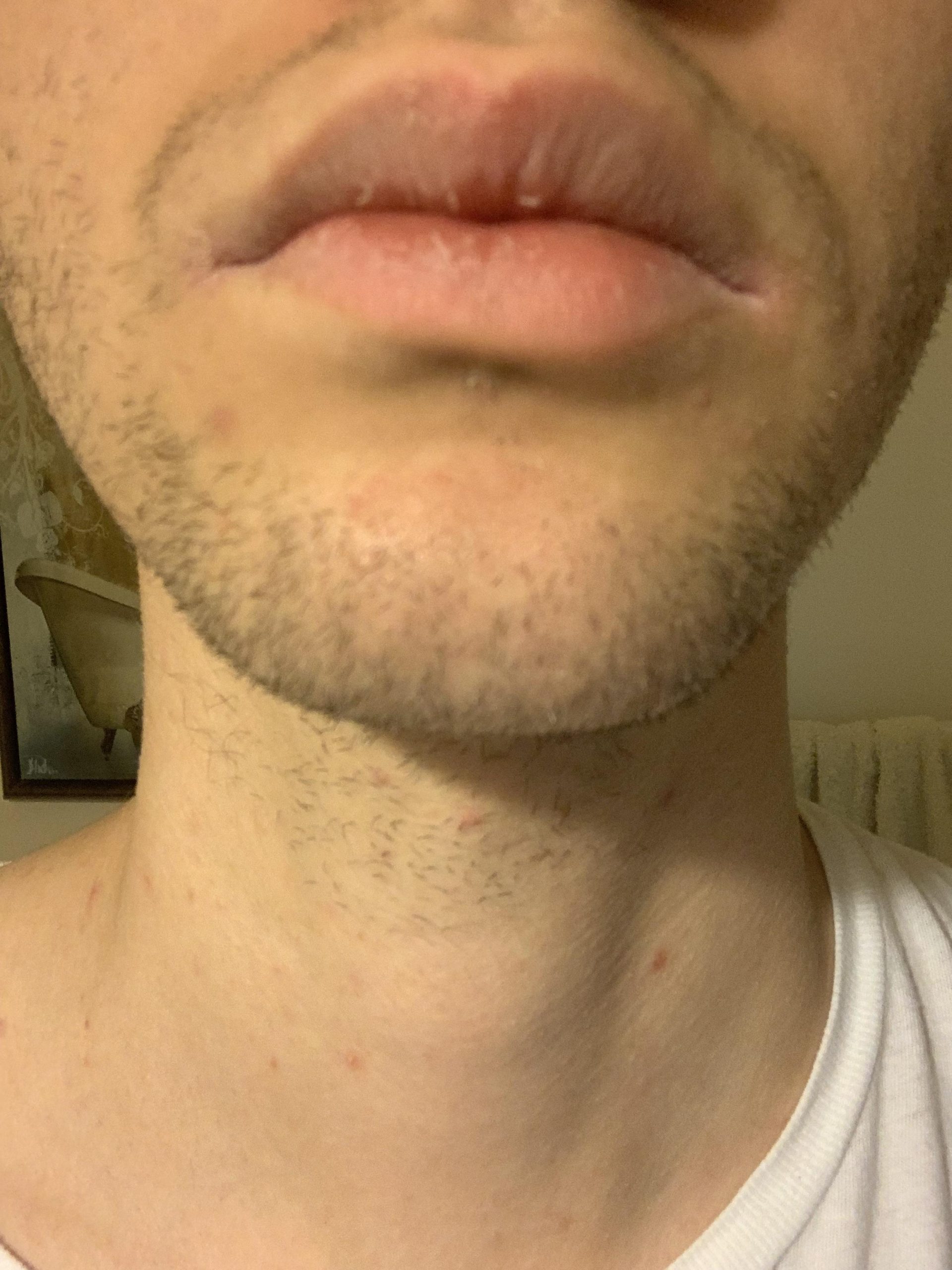
Image source: Reddit
Inadequate oxygen delivery to tissues, including the lungs, can lead to shortness of breath, especially during physical activity or exertion. Iron deficiency compromises the body's ability to transport oxygen from the lungs to other organs and tissues, resulting in breathlessness.
4. Dizziness or being light-headed

Image source: Reddit
Reduced oxygenation of the brain due to low haemoglobin levels can cause feelings of dizziness, lightheadedness, or vertigo, particularly upon standing up quickly. This symptom may be exacerbated by changes in blood pressure associated with iron deficiency.
5. Headaches
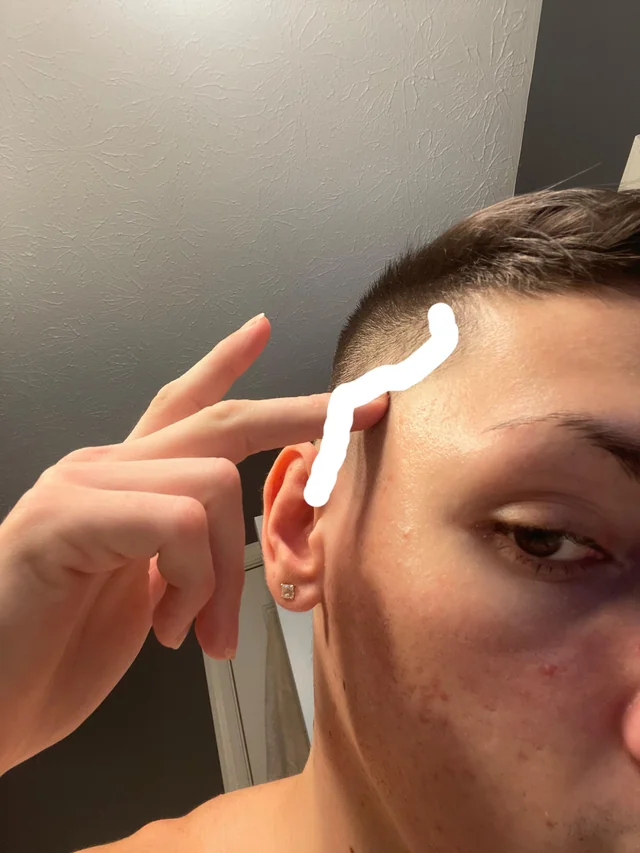
Image source: Reddit
Insufficient oxygen supply to the brain can prove to be very uncomfortable. It can trigger headaches, including tension headaches and migraines. Iron deficiency may contribute to the development or exacerbation of headaches due to its impact on blood flow and oxygenation.
6. Cold hands and feet
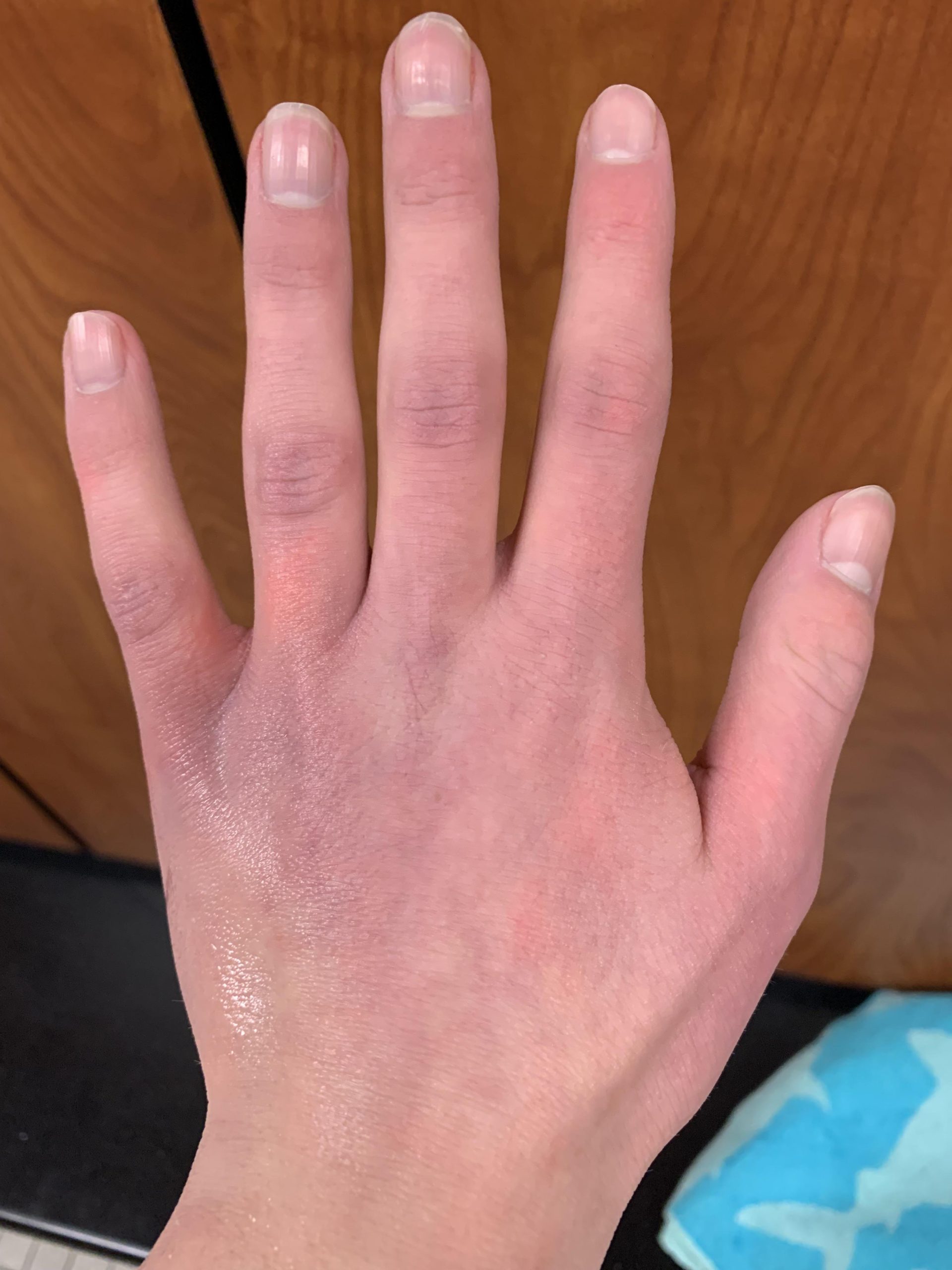
Image source: Reddit
Decreased circulation and oxygenation of tissues can lead to sensations of coldness or numbness in the extremities, such as the hands and feet. Individuals with iron deficiency may experience chronically cold hands and feet, even in warm environments.
7. Brittle or spoon-shaped nails
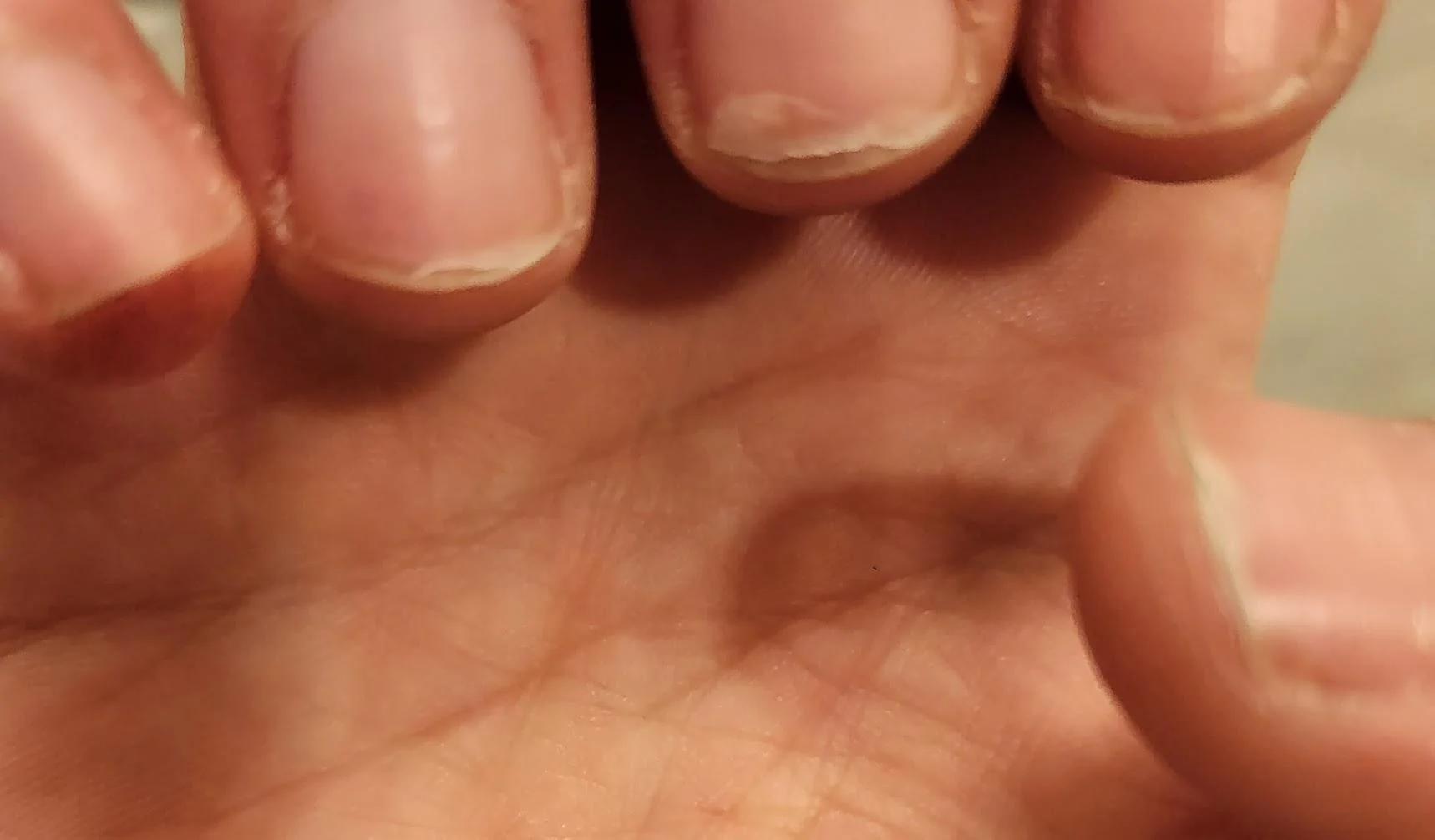
Image source: Reddit
Iron deficiency can affect nail health, causing brittleness, ridges, or spoon-shaped indentations known as koilonychia. These changes in nail texture and appearance may get to address the fact that you have underlying nutritional deficiencies, including iron deficiency.
8. Cravings for non-nutritive substances

Image source: George Weigel
Pica is characterized by cravings for non-food substances such as ice, clay, dirt, or starch. Some individuals with iron deficiency may experience pica as the body seeks alternative sources of iron. However, consuming non-nutritive substances can lead to digestive issues and other health problems.
9. Poor immune function

Image source: Imperial College
Iron deficiency weakens the immune system, making individuals more susceptible to infections. Low iron levels can impair immune cell function and compromise the body's ability to fight off pathogens, resulting in frequent infections, slow wound healing, and prolonged illness recovery times.
10.
Restless Legs Syndrome (RLS)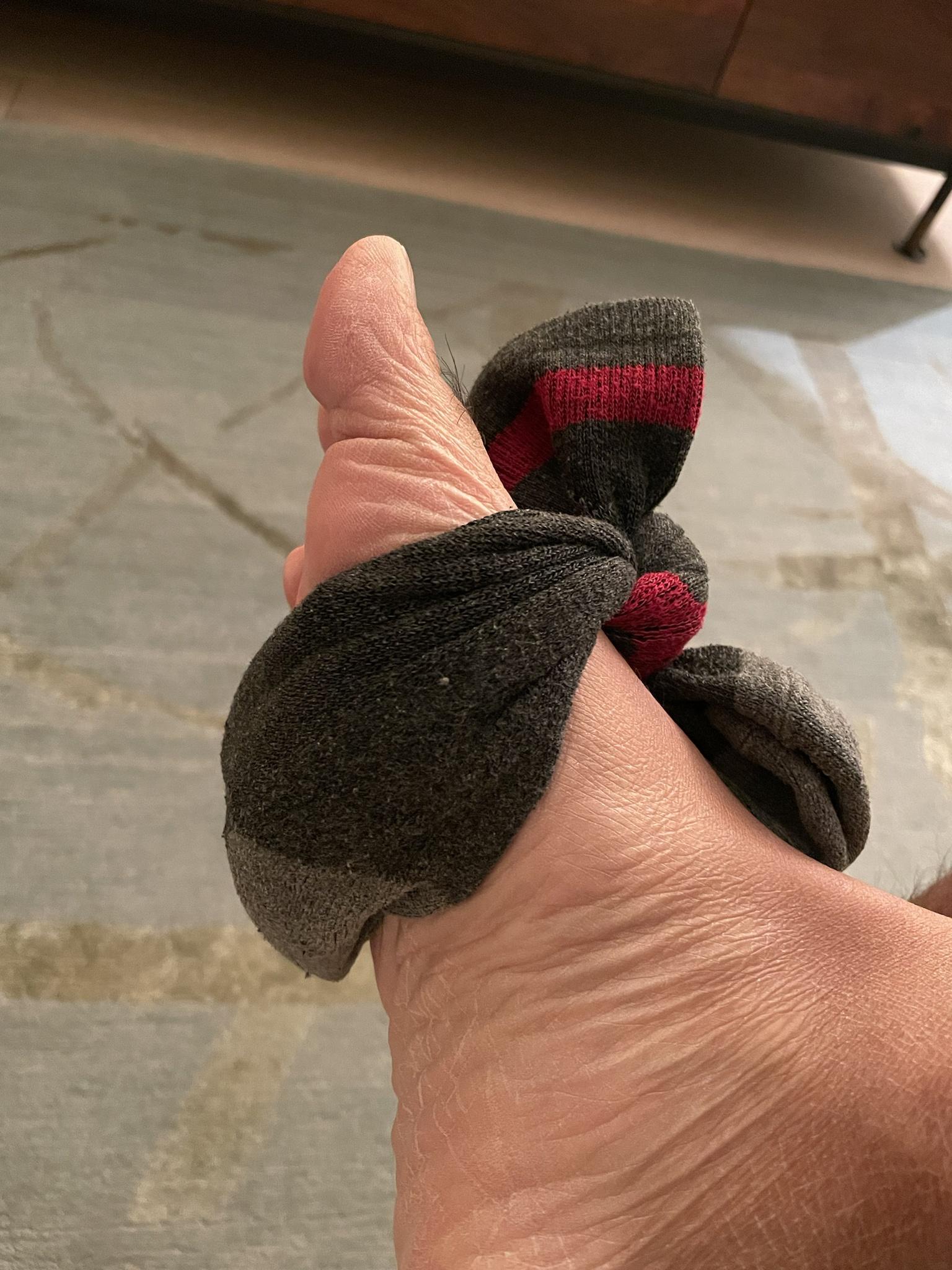
Image source: Reddit
Restless legs syndrome is a neurological disorder characterized by uncomfortable sensations in the legs and an irresistible urge to move them, particularly during rest or sleep. Iron deficiency has been linked to RLS, and addressing low iron levels may help alleviate symptoms in some individuals by restoring normal nerve function.
11. Palpitations
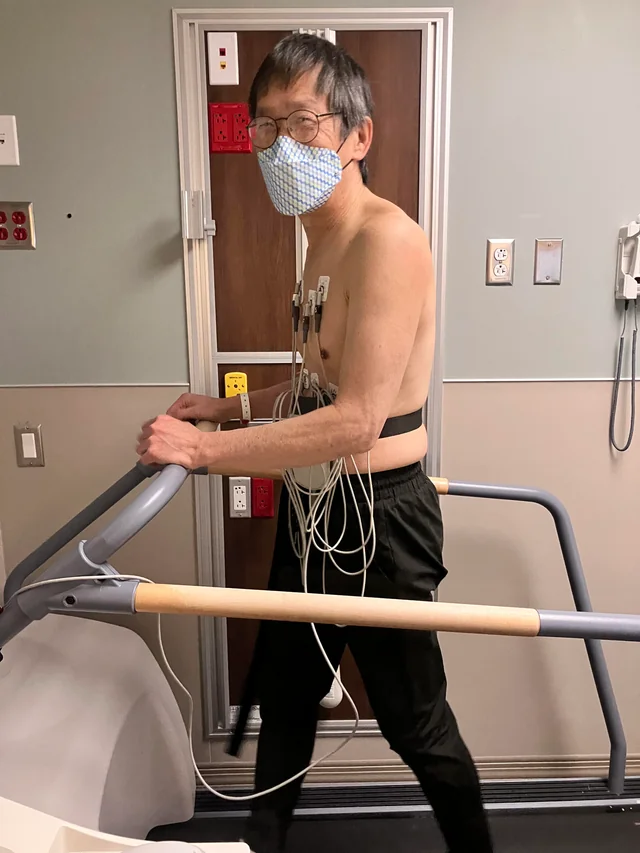
Image source: Reddit
Iron deficiency can lead to palpitations or sensations of a rapid, fluttering, or pounding heartbeat. This occurs because the heart works harder to compensate for reduced oxygen delivery to tissues. Palpitations may be particularly noticeable during physical exertion or when resting.
12. Hair loss

Image source: Reddit
Iron deficiency disrupts the normal growth cycle of hair follicles, leading to hair loss or thinning. This type of hair loss is known as telogen effluvium, where a significant number of hair follicles enter the resting phase prematurely and shed more hair than usual. Hair loss may occur gradually and be most noticeable during brushing, showering, or styling.
13. Cognitive impairment

Image source: Genetics
Iron is crucial for optimal brain function, and low iron levels can impair cognitive processes. Individuals with iron deficiency may experience difficulties with memory, concentration, attention, and problem-solving. They may also report feeling mentally foggy or unclear.
14. Weakness and fatigue during exercise

Image source: Insider
Iron deficiency compromises the body's ability to produce adenosine triphosphate (ATP), the primary energy currency of cells. During exercise, insufficient iron levels can lead to muscle weakness, fatigue, and decreased endurance. Individuals may find it challenging to complete physical activities or may experience prolonged recovery times after exercise.
15. Pica in children

Image source: Insider
Pica is a condition characterized by persistent cravings for non-food substances. In children with iron deficiency, pica may manifest as cravings for items such as ice, clay, dirt, chalk, or paper. These non-food cravings may be an attempt to obtain additional iron, although consuming non-nutritive substances can be harmful.
16. Delayed growth and development in children

Image source: BBC
Iron deficiency can impair growth and development in infants, children, and adolescents. Insufficient iron intake or absorption can delay developmental milestones such as crawling, walking, talking, and social interaction. Children may exhibit slower physical growth and may be shorter than expected for their age group.
17. Brittle or cracked lips

Image source: Reddit
Iron deficiency can lead to dryness, cracking, or inflammation of the lips, a condition known as cheilitis. Lips may appear dry, rough, or scaly, and cracks or fissures may develop, especially at the corners of the mouth. Cheilitis can be uncomfortable and may increase the risk of infections.
18. Pale conjunctiva
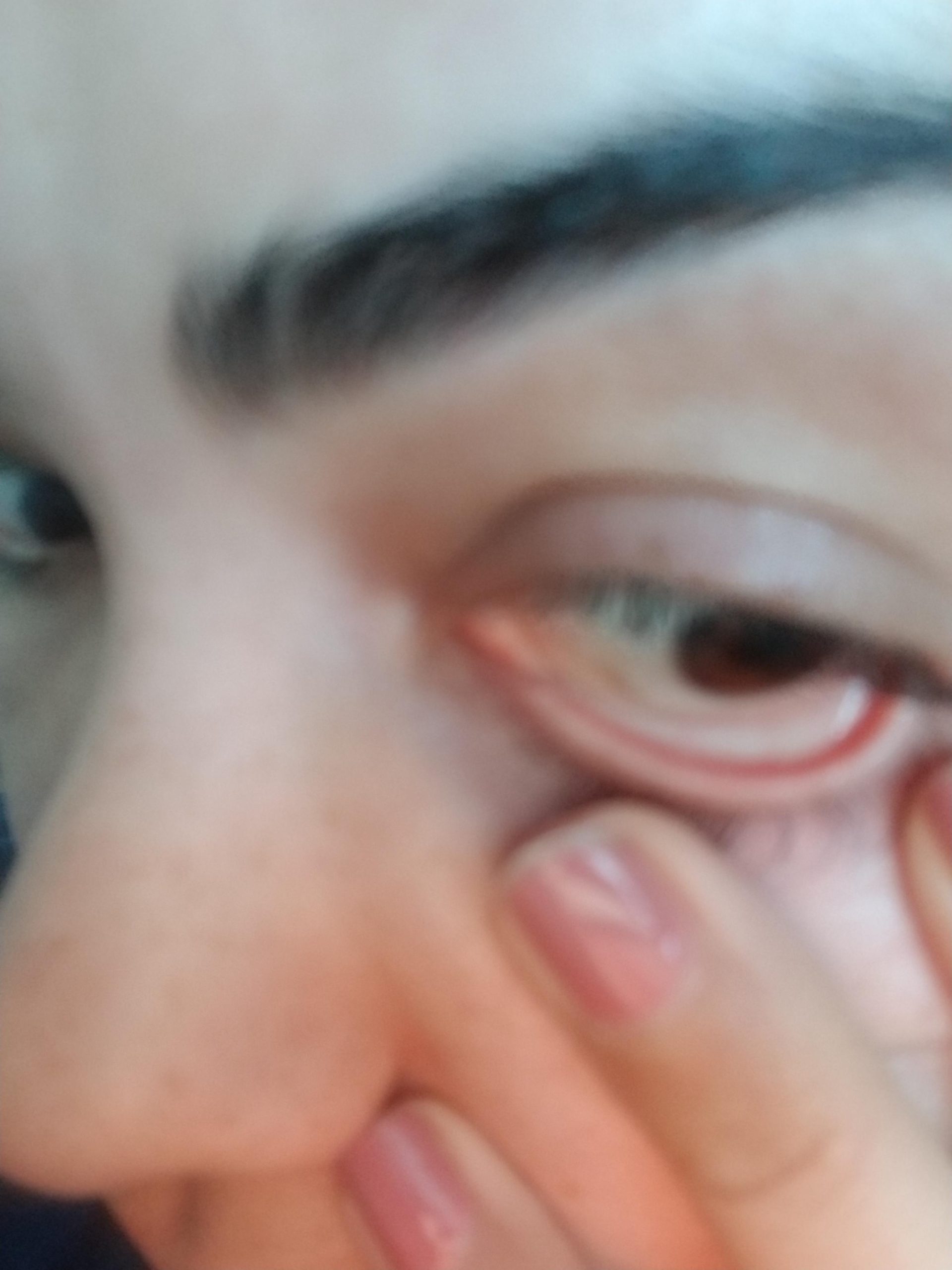
Image source: Reddit
The conjunctiva is the thin, transparent membrane that covers the white part of the eye and lines the inside of the eyelids. In individuals with iron deficiency, the conjunctiva may appear pale or whitish in color, indicating reduced blood flow and oxygenation. This pallor may be noticeable during a physical examination by a healthcare professional.
19. Frequent infections

Image source: Reddit
Iron deficiency weakens the immune system, making individuals more susceptible to infections. Reduced iron levels can impair the function of immune cells, such as neutrophils, lymphocytes, and macrophages, which play a crucial role in defending the body against pathogens. As a result, individuals with iron deficiency may experience more frequent colds, flu, respiratory infections, and gastrointestinal illnesses.
20. Rapid breathing (Tachypnea)

Image source: EB Medics
In severe cases of iron deficiency anaemia, the body may attempt to compensate for reduced oxygen levels by increasing the rate and depth of breathing. This can lead to tachypnea, or rapid breathing, as the body tries to improve oxygenation of tissues. Tachypnea may be accompanied by shortness of breath, dizziness, or feelings of air hunger.
21. Difficulty swallowing (dysphagia)
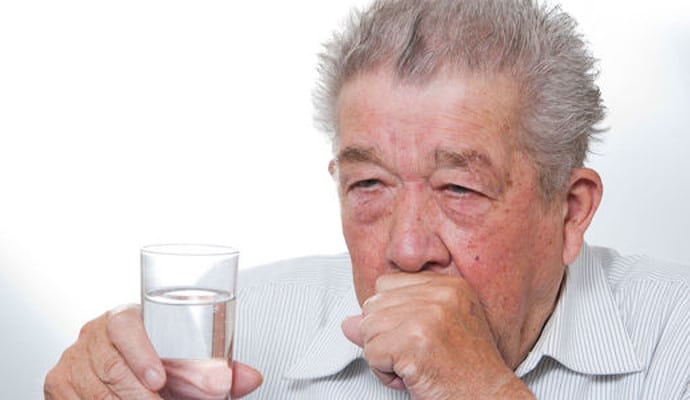
Image source: Reddit
Iron deficiency can cause inflammation and swelling of the tissues in the throat and oesophagus, leading to difficulty swallowing, a condition known as dysphagia. Individuals may experience a sensation of food getting stuck in the throat or chest, pain or discomfort when swallowing, and an increased risk of choking.
22. Weakness and fatigue during pregnancy

Image source: MomWorld
Iron deficiency is common during pregnancy due to increased iron requirements for foetal growth and development. Pregnant individuals with iron deficiency may experience excessive fatigue, weakness, and difficulty performing daily activities. Iron supplementation is often recommended during pregnancy to prevent iron deficiency anaemia.
23. Craving for ice (pagophagia)

Image source: UpChat
Iron deficiency can lead to unusual cravings for non-food items, a condition known as pica. Pagophagia specifically refers to a strong craving for ice, and individuals with iron deficiency may feel compelled to chew on ice cubes or consume large quantities of ice. This craving may arise as the body attempts to compensate for low iron levels.
24. Decreased exercise tolerance

Image source: Reddit
In addition to muscle weakness and fatigue, iron deficiency can reduce exercise tolerance and performance. Individuals with iron deficiency may find it challenging to engage in physical activities or may experience premature fatigue, muscle cramps, and reduced stamina during exercise.
25. Soreness and swelling of the tongue (glossitis)
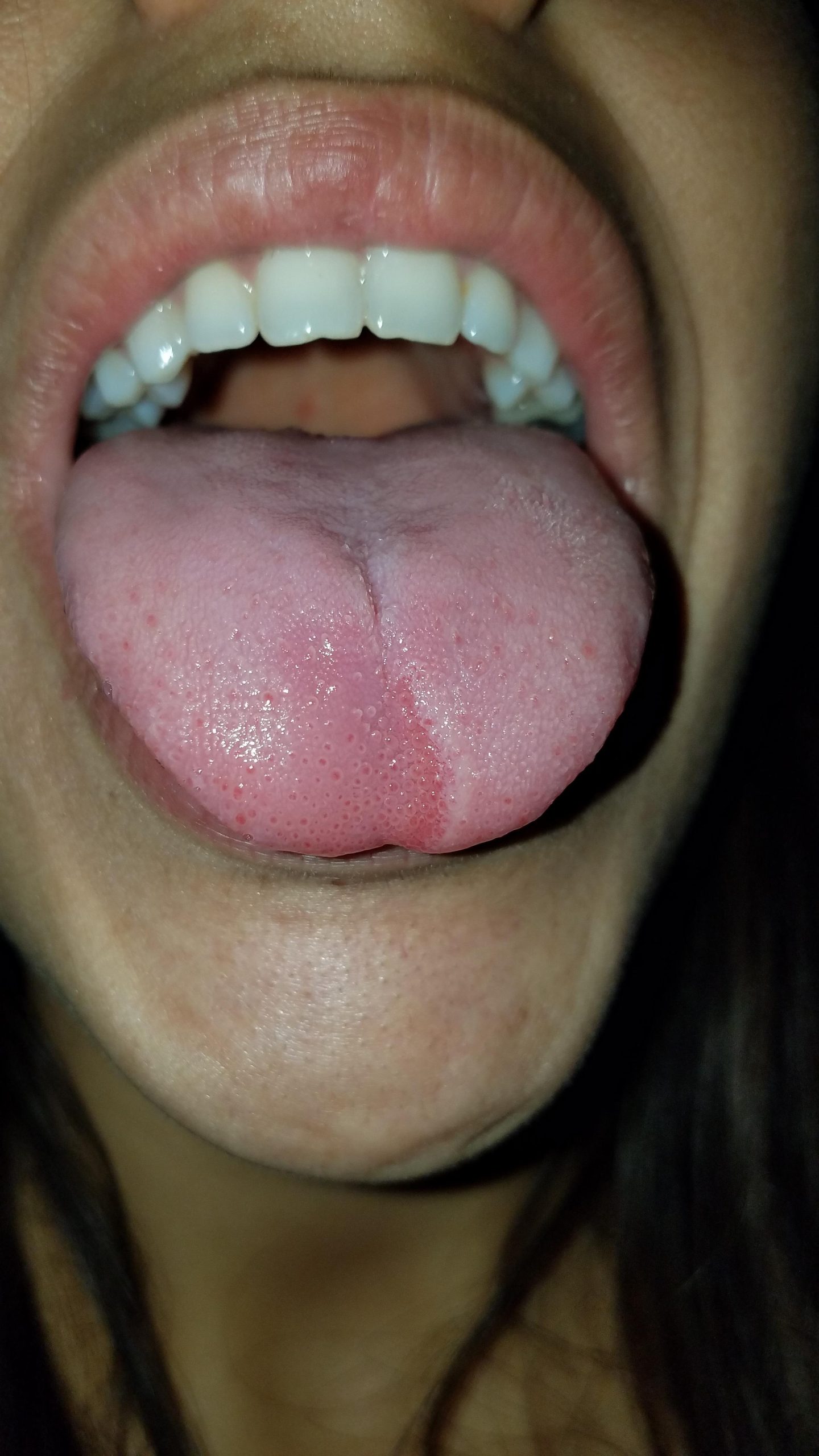
Image source: Reddit
Iron deficiency can cause inflammation, soreness, and swelling of the tongue, a condition known as glossitis and it can be very painful. The tongue may appear smooth, swollen, and pale, and individuals may experience discomfort or difficulty swallowing and speaking.
26. Impaired wound healing
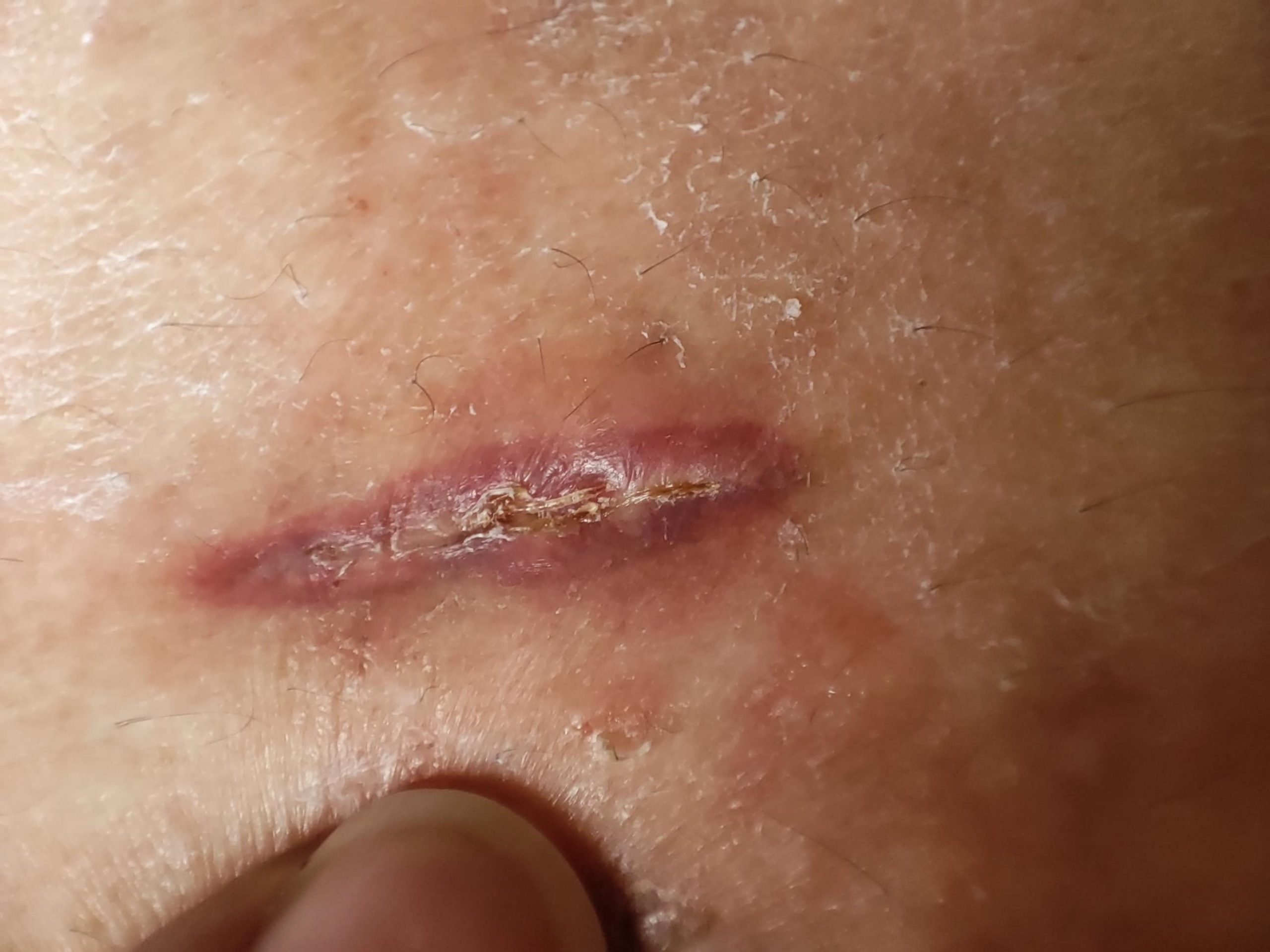
Image source: Reddit
Iron is essential for the production of collagen, a protein that plays a critical role in wound healing and tissue repair. Individuals with iron deficiency may experience delayed wound healing, prolonged recovery times from injuries, and an increased risk of infections at the wound site.
27. Mood changes and irritability

Image source: Reddit
Iron deficiency can affect a person's mood and emotional well-being, leading to irritability, mood swings, and feelings of sadness or depression. Changes in brain chemistry due to reduced oxygen supply may contribute to alterations in mood and behavior.
28. Difficulty regulating body temperature
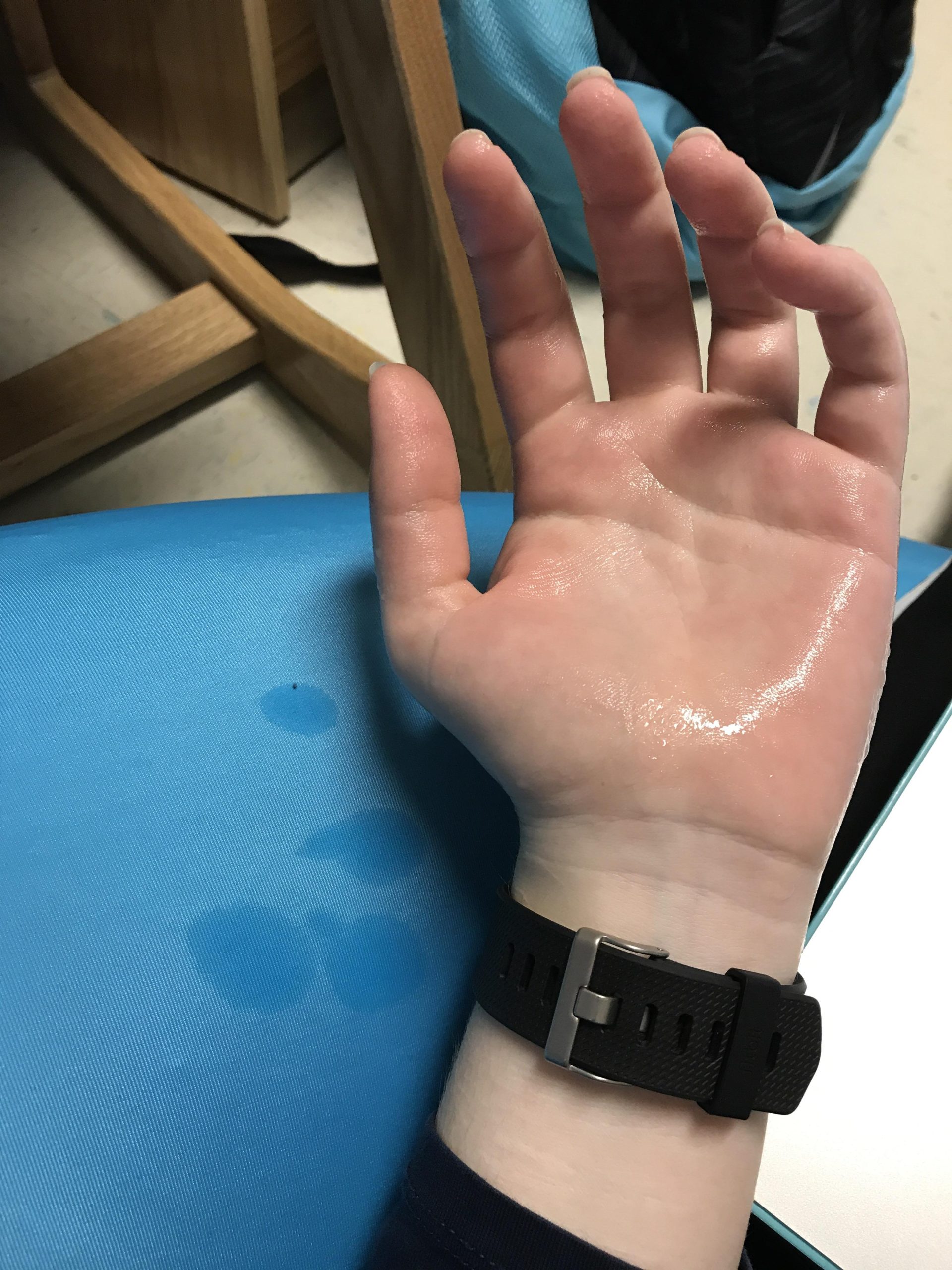
Image source: Reddit
Iron deficiency can disrupt the body's ability to regulate temperature, leading to fluctuations in body temperature and increased susceptibility to heat or cold stress. Individuals may experience sudden changes in body temperature, night sweats, or intolerance to extreme temperatures.
29. Impaired concentration and focus

Image source: Insider
Inadequate oxygen delivery to the brain can impair cognitive function, including concentration, focus, and attention span. Individuals with iron deficiency may find it challenging to concentrate on tasks, retain information, and stay mentally alert and engaged.
30. Increased risk of pre-eclampsia

Image source: Reddit
Iron deficiency during pregnancy has been linked to an increased risk of developing pre-eclampsia, a serious pregnancy complication characterized by high blood pressure, proteinuria, and potential organ damage. Pre-eclampsia can have significant implications for maternal and foetal health and requires close monitoring and medical management.
31. Let's look at ways to increase your iron levels -
Consume iron-rich foods
Image source: Reddit
Iron-rich foods include both heme and non-heme sources. Heme iron is found in animal products and is more easily absorbed by the body. Examples include beef, lamb, pork, poultry, and seafood like clams, oysters, and mussels. Non-heme iron is found in plant-based sources like lentils, chickpeas, beans, tofu, spinach, fortified cereals, and pumpkin seeds.
32. Choose heme iron sources

Image source: HealthWise
Heme iron from animal sources is more bioavailable and efficiently absorbed by the body compared to non-heme iron. Incorporating heme iron sources into your diet can help increase your overall iron intake and improve iron status. Examples include lean cuts of beef, chicken, turkey, and fish like salmon and tuna.
33. Pair iron-rich foods with vitamin C

Image source: Reckoning
Vitamin C enhances non-heme iron absorption by converting ferric iron (Fe^3+) into ferrous iron (Fe^2+), which is more easily absorbed in the intestines. Citrus fruits like oranges, lemons, and grapefruits, as well as strawberries, kiwi, bell peppers, and tomatoes, are excellent sources of vitamin C to pair with iron-rich foods.
34. Cook with cast iron cookware

Image source: Reddit
Cooking acidic foods such as tomato-based dishes or sauces in cast iron cookware can increase the iron content of the food. The iron from the cookware leaches into the food during cooking, providing an additional dietary source of iron which you probably did not realise.
35. Avoid consuming iron blockers
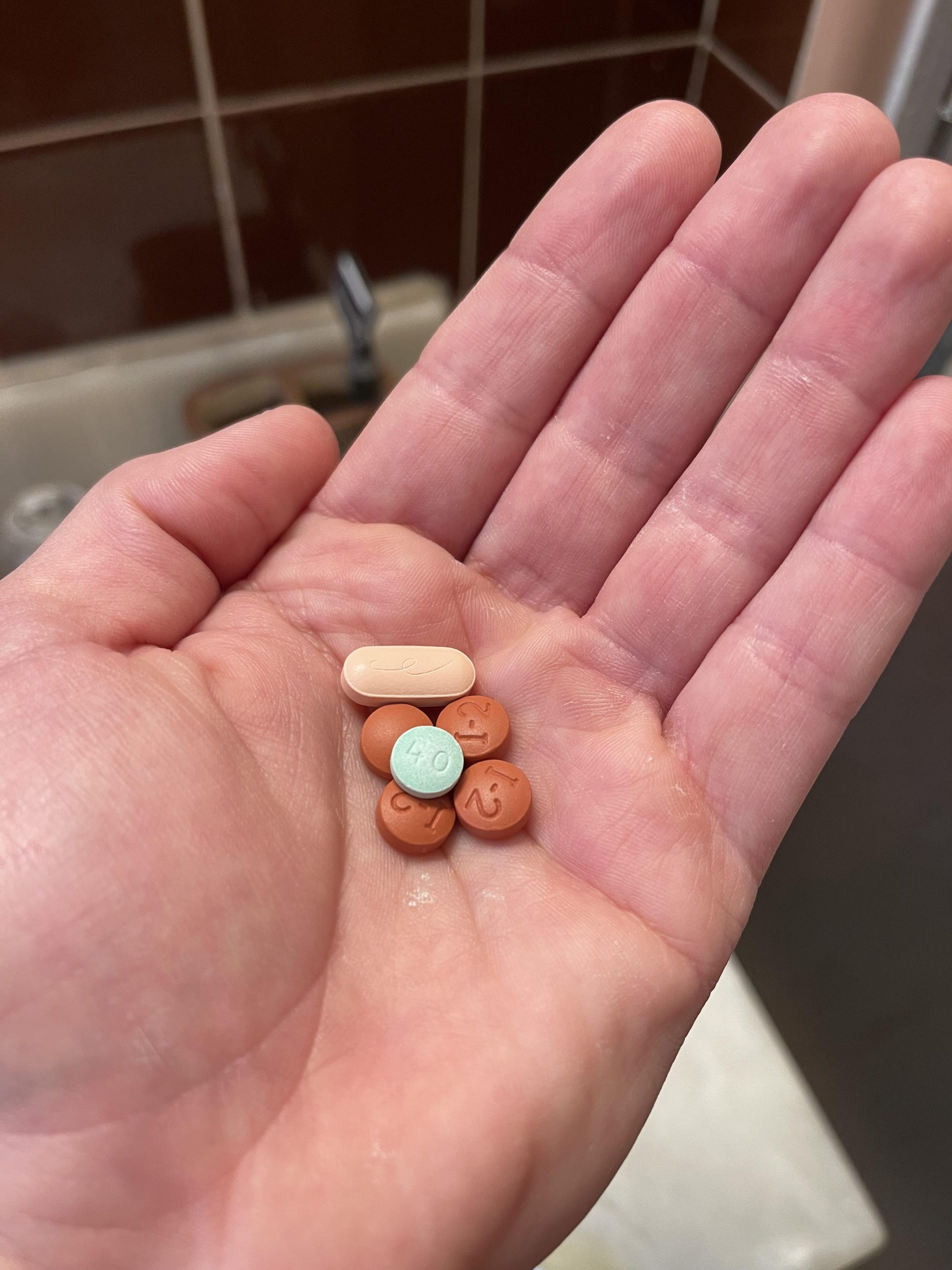
Image source: Reddit
Substances like tannins, calcium, and phytates can inhibit iron absorption. Tannins are present in tea and coffee, while calcium is found in dairy products. Phytates are naturally occurring compounds found in whole grains, legumes, nuts, and seeds. Consuming these foods in moderation and at separate times from iron-rich meals can help maximize iron absorption.
36. Consider iron supplements
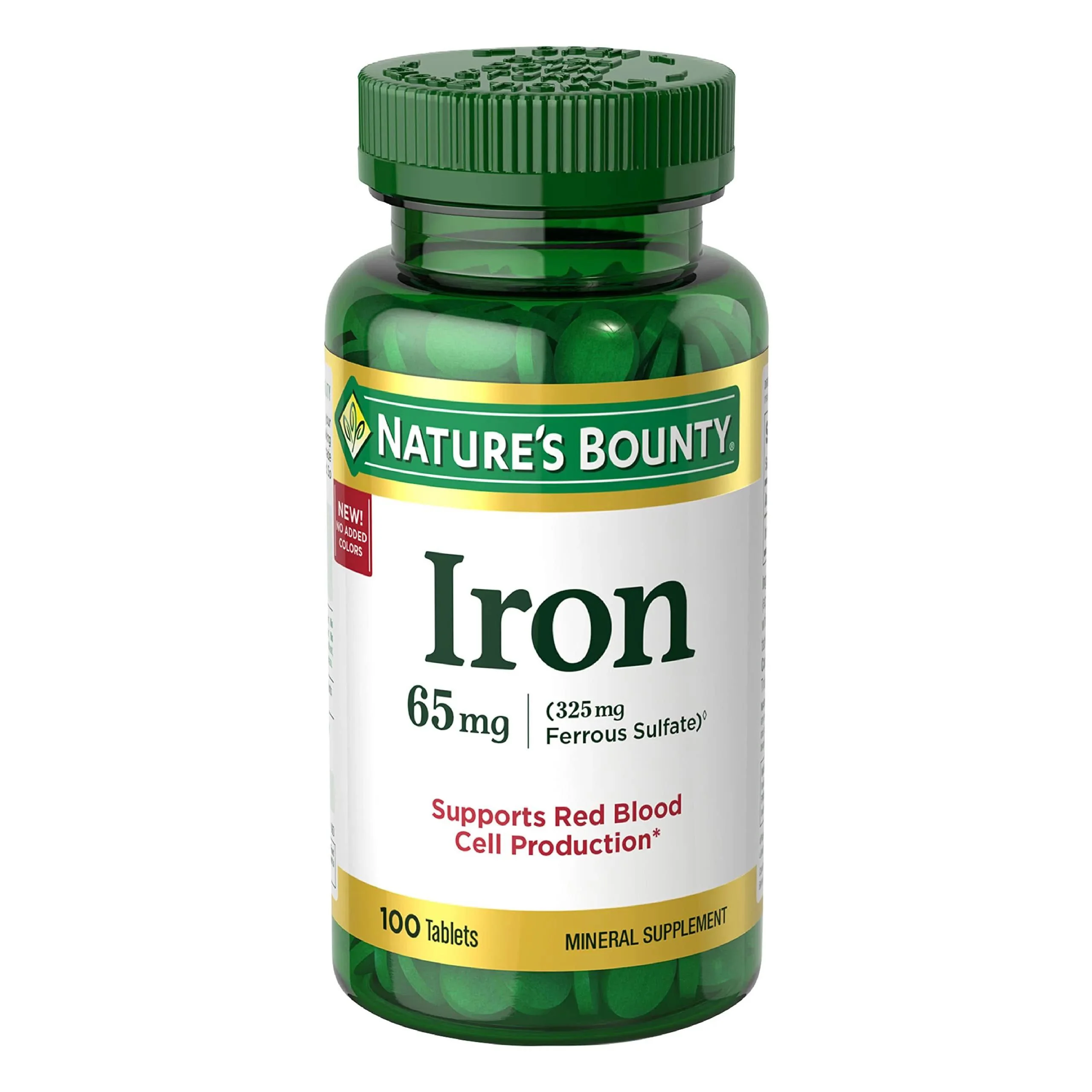
Image source: Reddit
Iron supplements may be recommended by healthcare professionals to help meet daily iron requirements, especially for individuals with iron deficiency or those at risk of deficiency. Iron supplements come in various forms, including ferrous sulfate, ferrous gluconate, and ferrous fumarate, and should be taken as directed to prevent gastrointestinal side effects.
37. Avoid drinking tea or coffee with meals

Image source: Reddit
Tea and coffee contain compounds like tannins that can bind to iron and inhibit its absorption in the body. It's best to avoid drinking tea or coffee with meals, especially if you're consuming iron-rich foods, to optimize iron absorption. If you can't totally refrain, drink in moderation.
38. Eat foods rich in vitamin B12 and folate

Image source: Reddit
Vitamin B12 and folate are essential for the production of healthy red blood cells and haemoglobin. Sources of vitamin B12 include animal products like meat, fish, poultry, eggs, and dairy. Folate-rich foods include leafy greens like spinach, kale, and collard greens, as well as legumes, fortified grains, and citrus fruits.
39. Consider cooking with blackstrap molasses
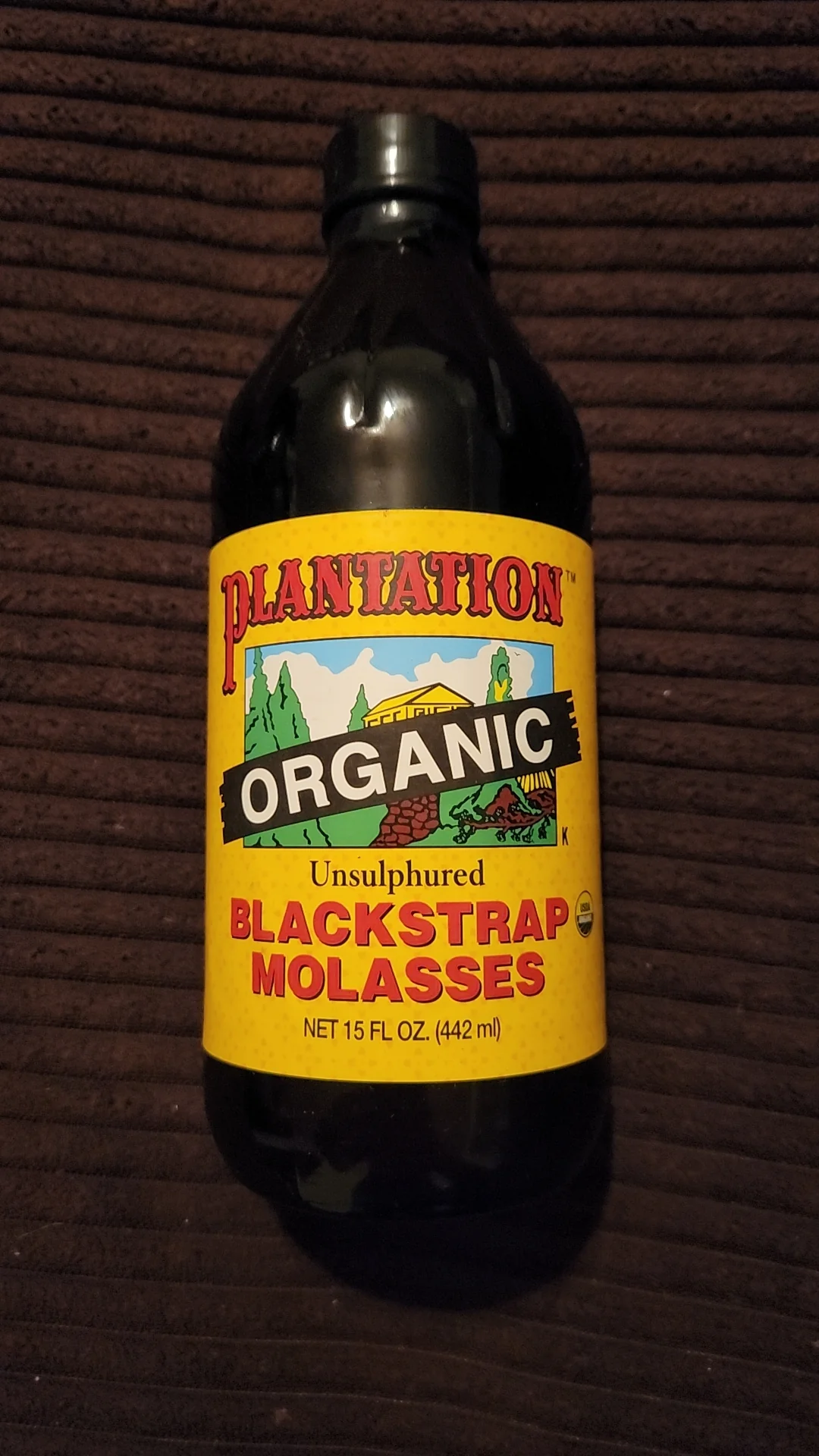
Image source: Reddit
Blackstrap molasses is a by product of sugar production and is a concentrated source of iron and other nutrients, including calcium, magnesium, and potassium. Incorporating blackstrap molasses into recipes for baked goods, marinades, sauces, and dressings can add flavor and boost iron intake.
40. Monitor iron levels regularly
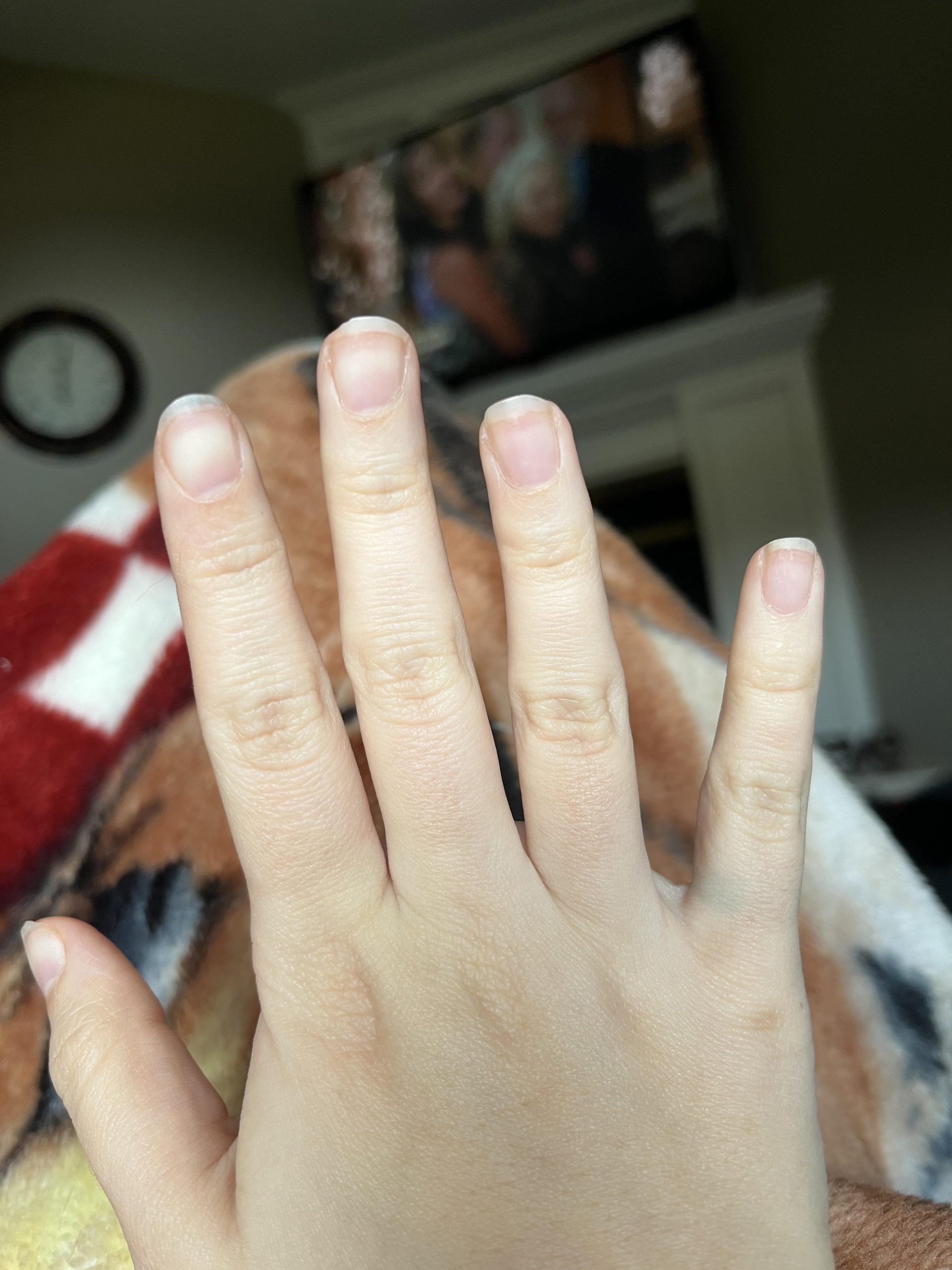
Image source: Reddit
If you have a history of iron deficiency or are at risk of developing iron deficiency anaemia, regular monitoring of iron levels through blood tests is important. Healthcare professionals can interpret your results and provide guidance on dietary changes, supplementation, or medical interventions as needed to maintain optimal iron status.
41. Besides iron, vitamin D deficiency can be serious - it can affect b
one health and calcium absorption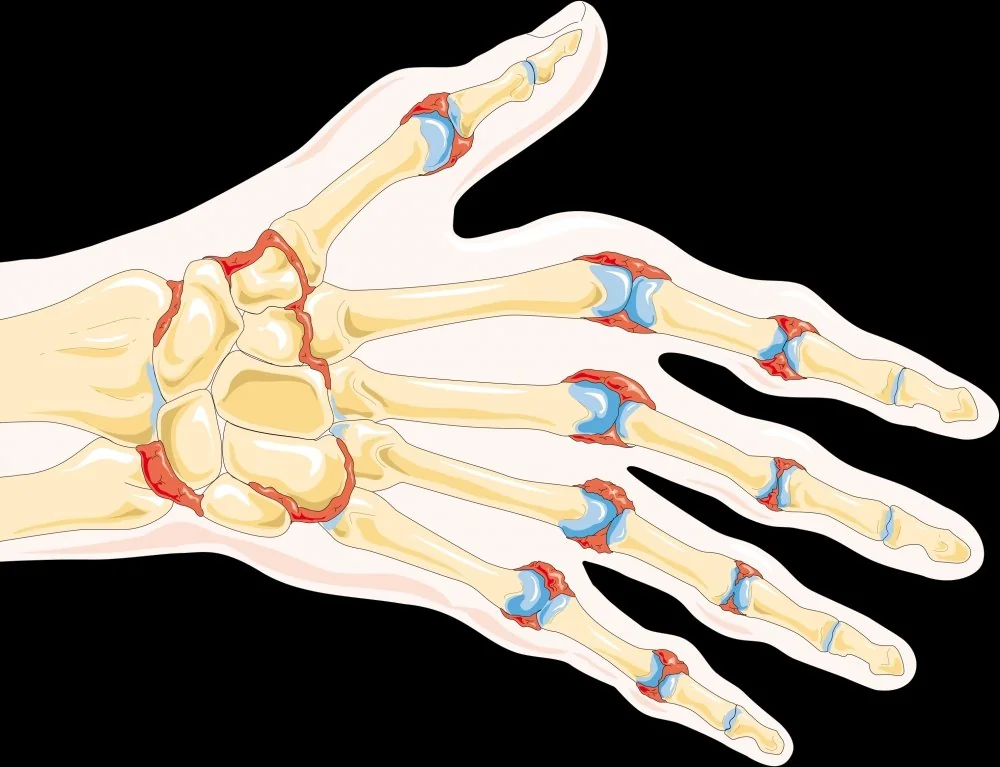
Image source: Reddit
Vitamin D plays a crucial role in maintaining bone health by promoting the absorption of calcium and phosphorus from the intestine. Adequate levels of vitamin D are necessary for proper bone mineralization, density, and strength. Without sufficient vitamin D, bones can become weak, brittle, and prone to fractures.
42. Increased risk of osteoporosis

Image source: Reddit
Chronic vitamin D deficiency can contribute to the development of osteoporosis, a progressive bone disease characterized by low bone density and an increased risk of fractures. Individuals with osteoporosis are more susceptible to fractures, particularly in the spine, hips, and wrists, which can significantly impact quality of life and mobility.
43. Muscle weakness and pain

Image source: Reddit
Vitamin D deficiency can lead to muscle weakness, fatigue, and generalized muscle pain. Vitamin D receptors are present in muscle tissue, and adequate levels of vitamin D are necessary for optimal muscle function and contraction. Deficiency may impair muscle strength and performance, leading to reduced mobility and an increased risk of falls and injuries.
44. Impaired immune function
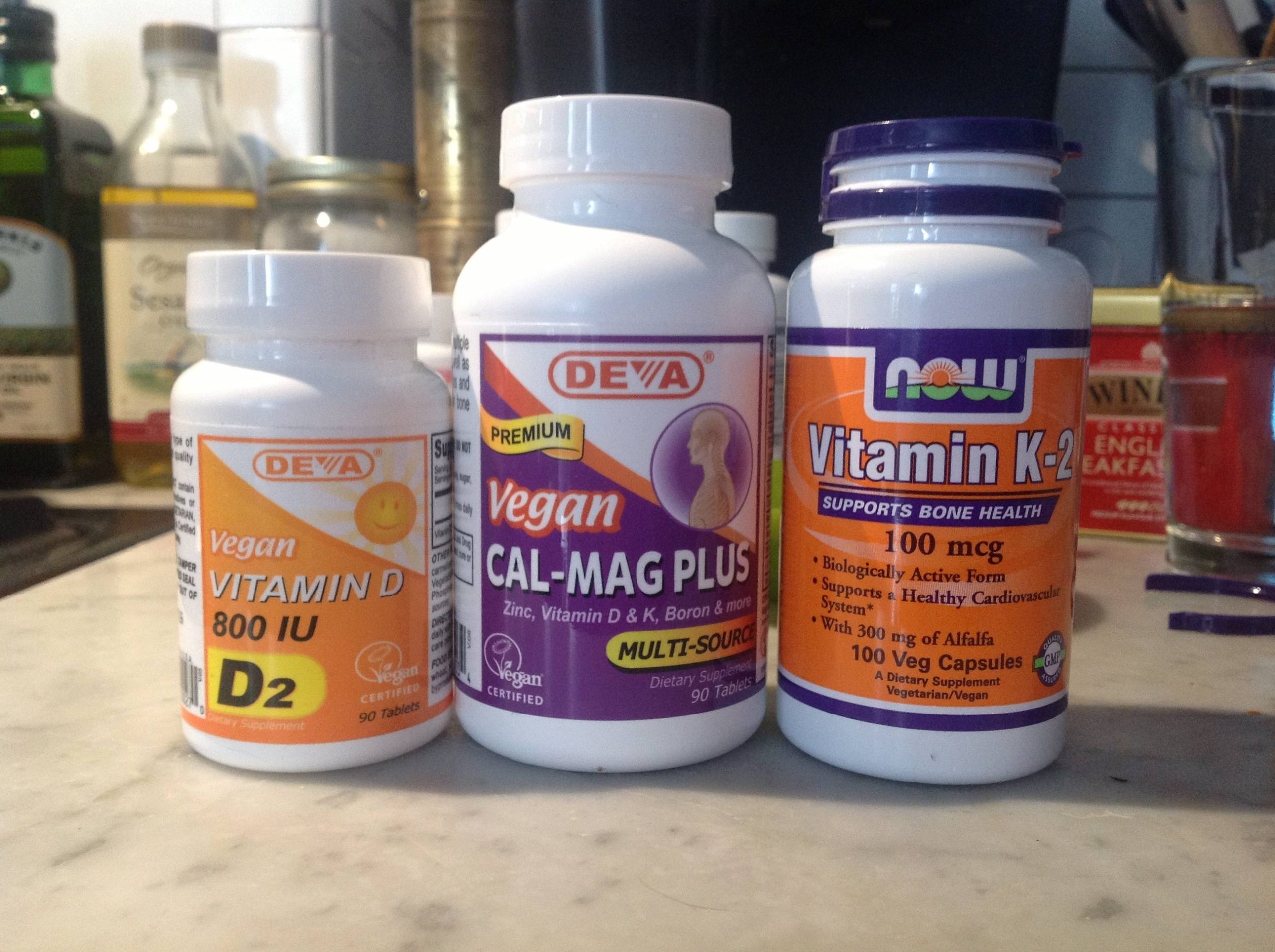
Image source: Reddit
Vitamin D plays a crucial role in modulating the immune system and supporting immune function. Deficiency may compromise the body's ability to mount an effective immune response against infections and pathogens. Individuals with vitamin D deficiency may be more susceptible to respiratory infections, influenza, and autoimmune disorders.
45. Mood disorders and depression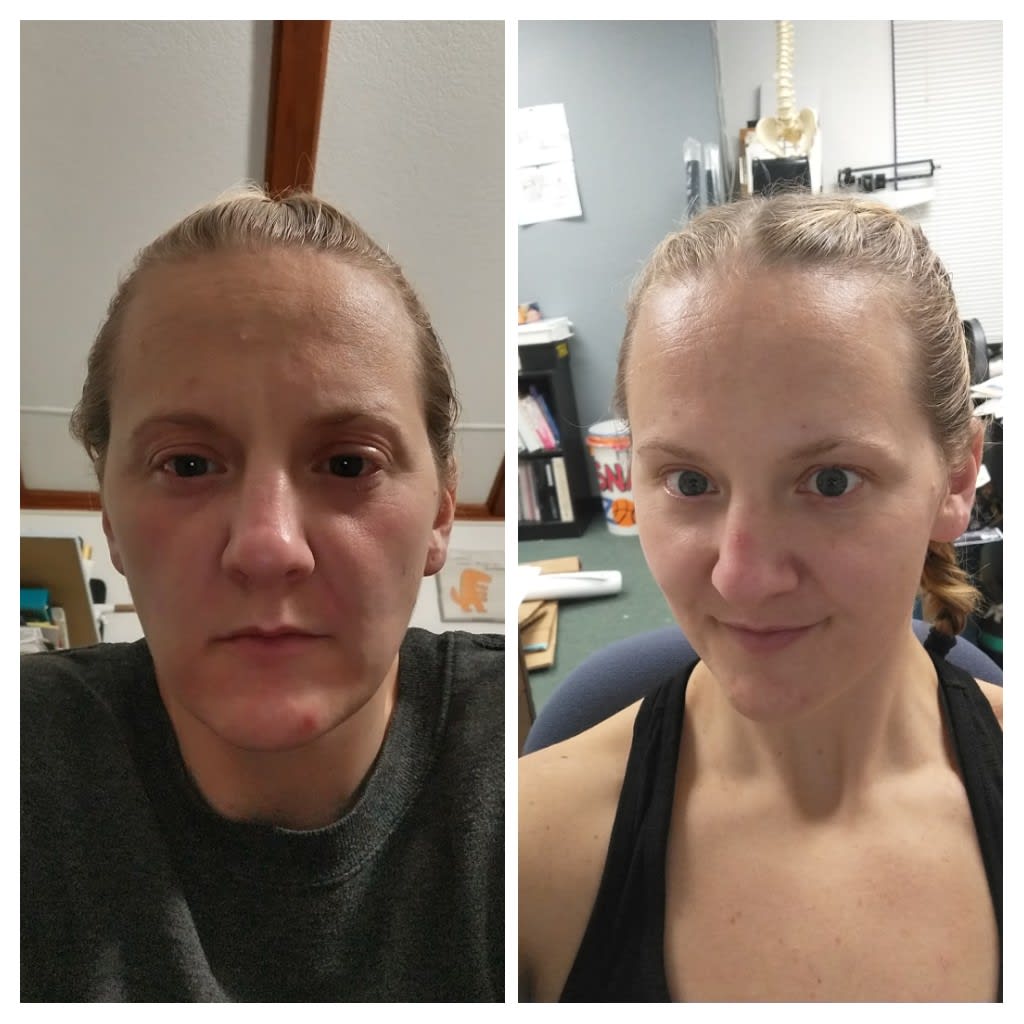
Image source: Vocal Media
Emerging research suggests a potential link between vitamin D deficiency and mood disorders such as depression and seasonal affective disorder (SAD). Vitamin D receptors are present in regions of the brain involved in mood regulation, and adequate levels of vitamin D may support neurotransmitter synthesis and function. Deficiency has been associated with symptoms of depression, anxiety, and low mood.
46. Impaired wound healing
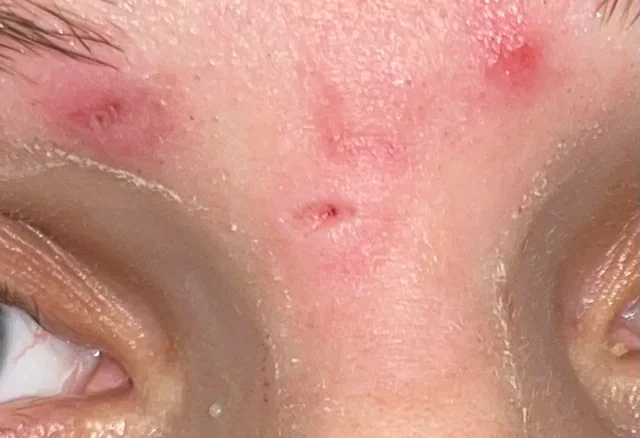
Image source: Reddit
Vitamin D plays a large role in supporting the immune response to any injuries and wounds. Deficiency may impair the body's ability to heal wounds and recover from surgeries, leading to delayed wound healing and increased susceptibility to infections.
47. Hair loss and alopecia
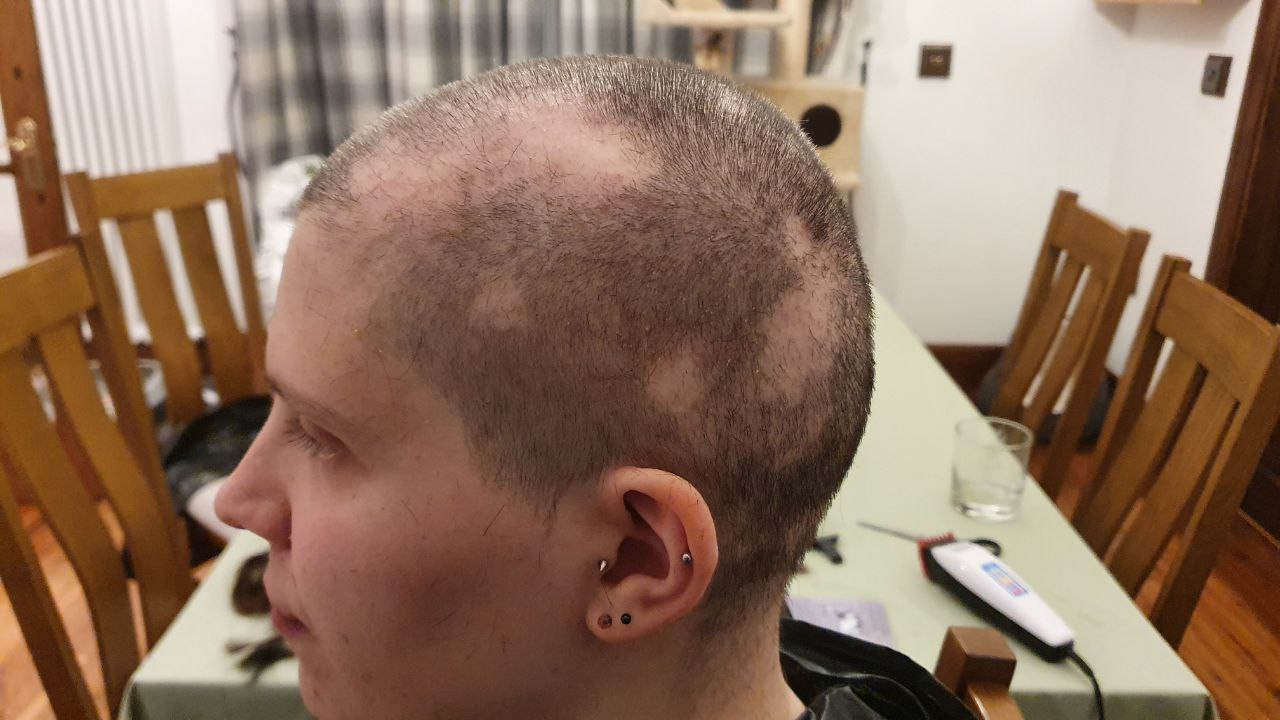
Image source: Reddit
Some studies suggest a potential association between vitamin D deficiency and hair loss or alopecia. Vitamin D receptors are present in hair follicles, and adequate levels of vitamin D may support hair growth and follicle health. Deficiency may disrupt the hair growth cycle and contribute to hair thinning or hair loss.
48. Cognitive decline and neurological disorders

Image source: Reddit
Vitamin D receptors are found in various regions of the brain, and adequate vitamin D levels may play a role in cognitive function and brain health. Deficiency has been linked to cognitive decline, impaired memory, and an increased risk of neurodegenerative disorders such as Alzheimer's disease and dementia.
49. Cardiovascular health

Image source: Reddit
Emerging research suggests that vitamin D deficiency may be associated with an increased risk of cardiovascular disease. Low vitamin D levels have been linked to hypertension, atherosclerosis, coronary artery disease, and an increased risk of heart attack and stroke.
50. Increased susceptibility to infections

Image source: BuzzFeed
Vitamin D plays a crucial role in supporting the innate and adaptive immune systems, which are responsible for defending the body against infections and pathogens. Deficiency in vitamin D may compromise immune function and increase susceptibility to infections, including respiratory infections, influenza, and viral illnesses.
51. Chest Pain
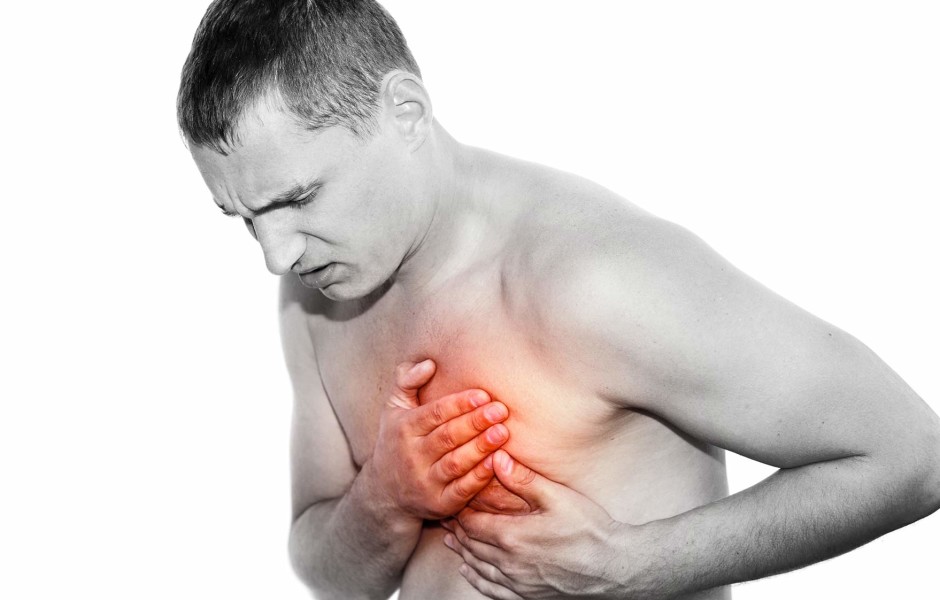
Image source: Reddit
Chest pain can be a concerning symptom of iron deficiency anemia, often related to reduced oxygen delivery to the heart muscles. It may present as sharp or dull discomfort, tightness, or pressure in the chest, and can sometimes be mistaken for cardiac issues. If you experience chest pain, especially during physical exertion, it's essential to seek medical evaluation to rule out serious underlying conditions and explore appropriate treatments.
52. Dry Hair

Image source: Reddit
Iron deficiency can manifest in various ways, including dry, brittle hair that lacks luster and elasticity. Inadequate iron levels compromise the nourishment of hair follicles and disrupt the hair growth cycle, leading to dryness, fragility, and increased susceptibility to breakage. Incorporating iron-rich foods into your diet or taking supplements as recommended can help improve hair health and restore moisture and vitality to your locks.
53. Dry Skin
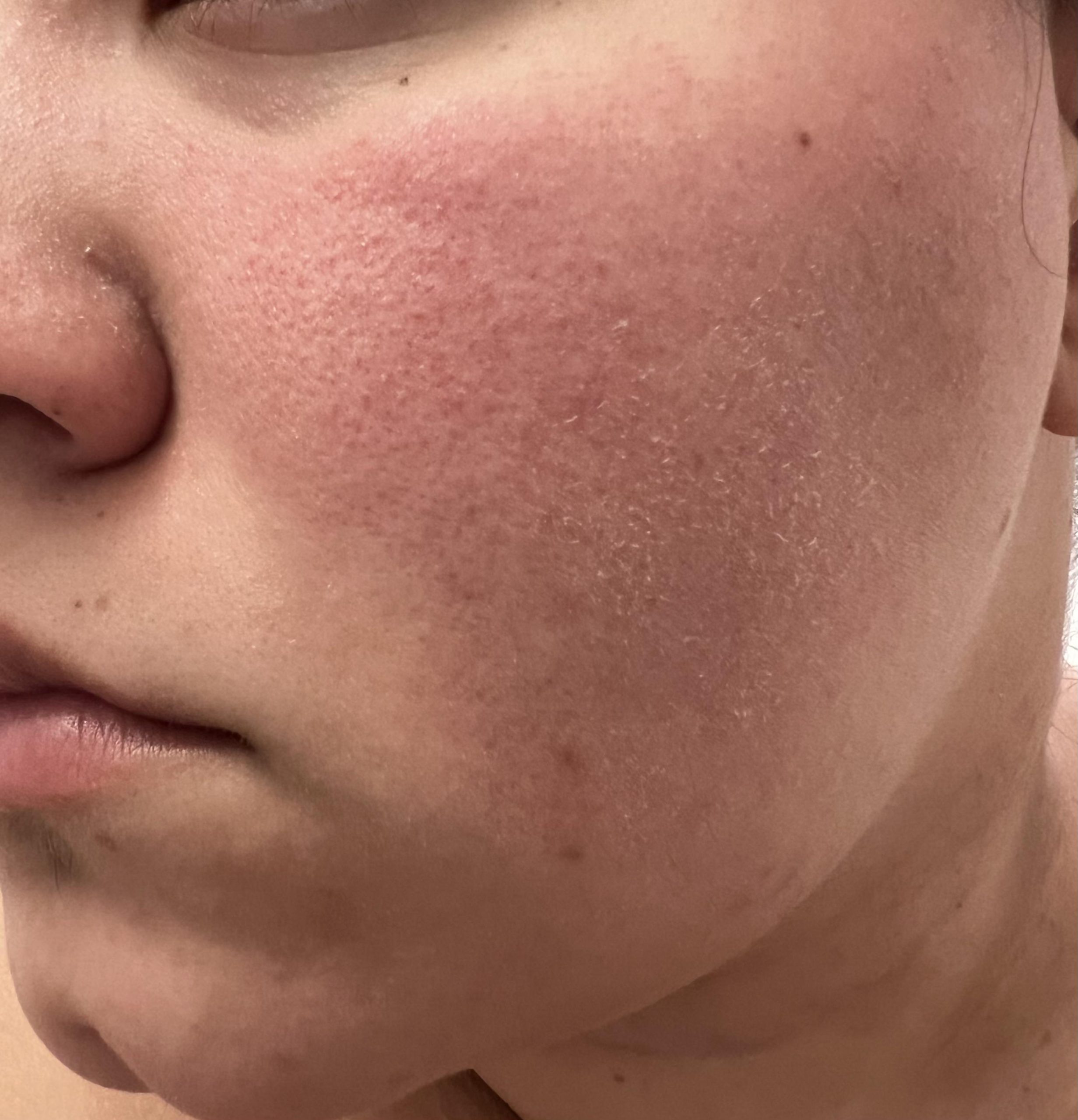
Image source: Reddit
Iron deficiency can contribute to dry, rough, and flaky skin due to impaired circulation and decreased oxygen delivery to the skin cells. Insufficient iron levels compromise the skin's ability to retain moisture and maintain optimal hydration levels, resulting in dryness, itching, and irritation.
54. Reduced Appetite

Image source: Reddit
Iron deficiency can disrupt appetite regulation and lead to a decreased desire to eat, which may result in inadequate nutrient intake and exacerbate existing nutritional deficiencies. Changes in taste perception, alterations in hormone levels, and impaired neurotransmitter function associated with iron deficiency can contribute to appetite suppression.
55. Increased Susceptibility to Bruising
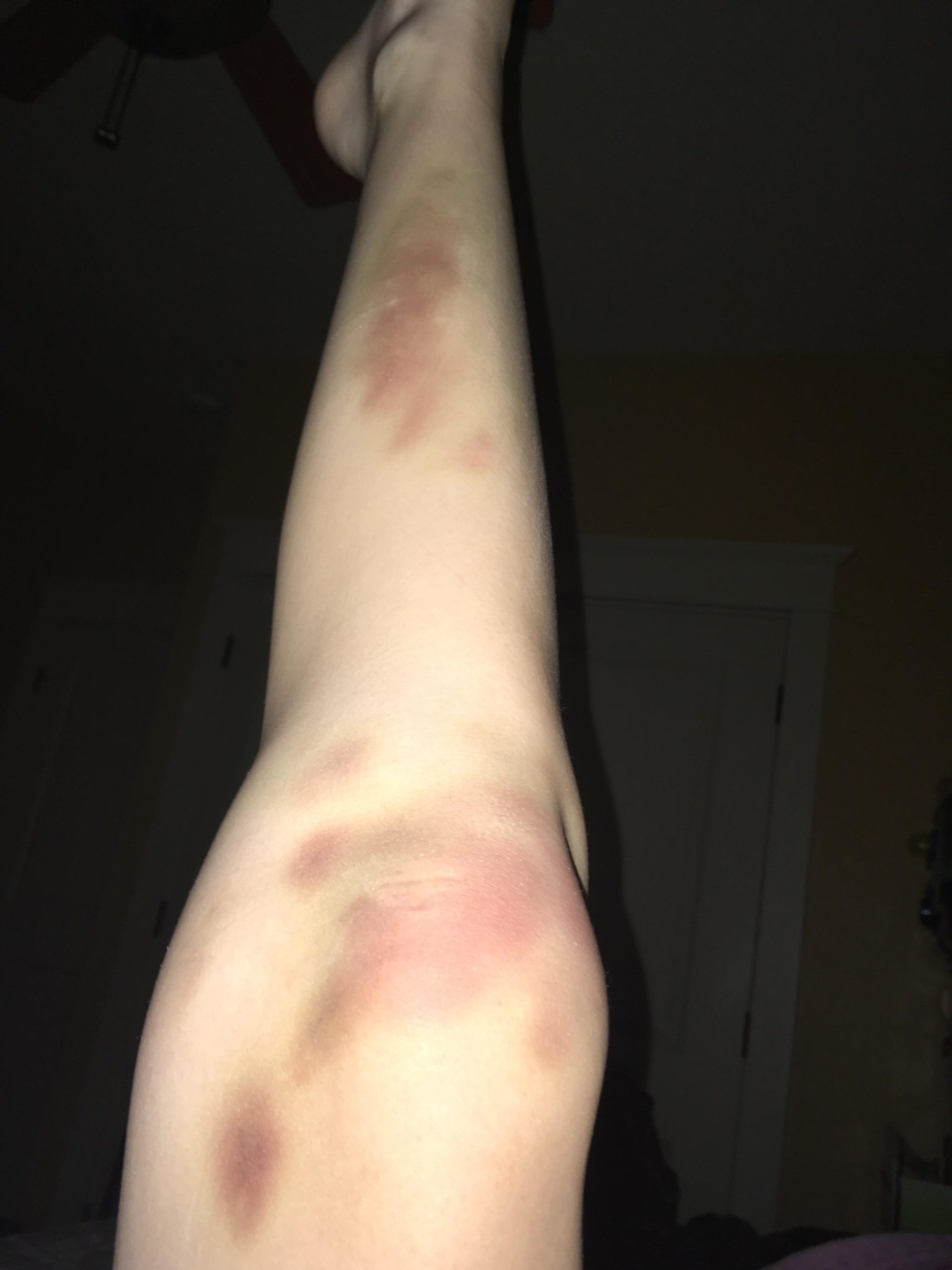
Image source: Reddit
Iron deficiency can weaken blood vessel walls and impair the body's ability to form blood clots, leading to increased susceptibility to bruising from minor trauma or injury. Bruises may appear more frequently, larger in size, and take longer to heal in individuals with iron deficiency anemia due to reduced platelet function and compromised vascular integrity.
56. Cramps in Legs

Image source: Reddit
Iron deficiency anemia can cause muscle cramps and spasms, particularly in the legs, due to inadequate oxygen delivery to muscle tissues during physical activity. Muscle cramps may occur during exercise or at rest and can range from mild discomfort to severe pain.
57. Difficult Maintaining a Healthy Body Weight

Image source: Reddit
Iron deficiency can disrupt metabolic processes and energy production, leading to alterations in body composition and difficulties in maintaining a healthy weight. Changes in appetite, nutrient absorption, and calorie utilization associated with iron deficiency anemia may contribute to weight loss or difficulty gaining weight, despite adequate food intake.
58. Tingling in Legs
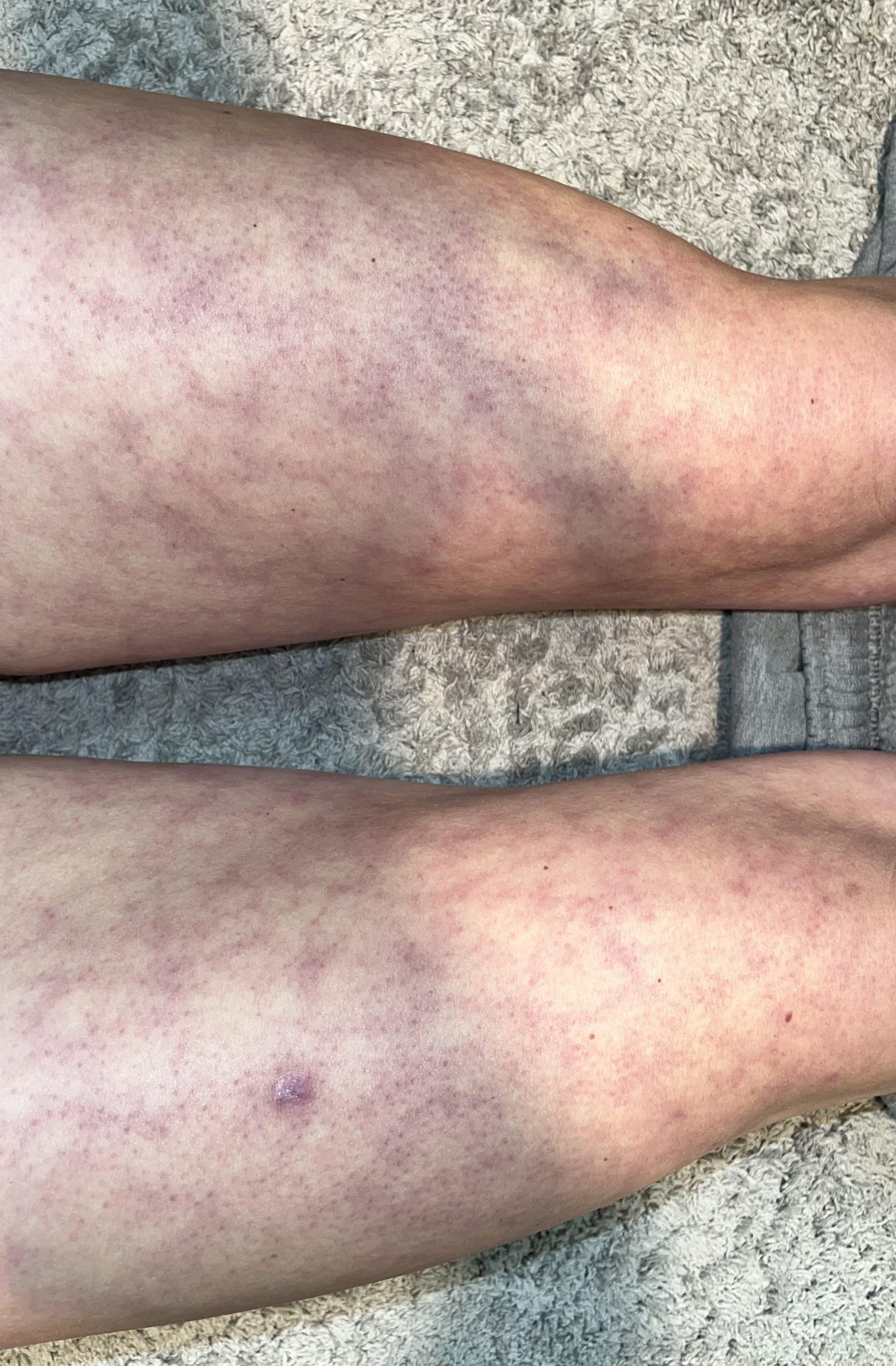
Image source: Reddit
Iron deficiency anemia can cause peripheral neuropathy, resulting in tingling, numbness, or weakness in the legs and feet due to nerve damage. Inadequate oxygen supply to peripheral nerves impairs nerve function and transmission, leading to sensory disturbances and abnormal sensations.
59. Lowered Libido

Image source: Reddit
Iron deficiency anemia can disrupt hormone balance and neurotransmitter activity, leading to decreased libido or sexual desire. Reduced oxygen delivery to tissues, including reproductive organs, can impair sexual function and arousal, contributing to decreased libido and sexual satisfaction.
60. Mouth Ulcers Increase

Image source: Reddit
Iron deficiency anemia can manifest as recurrent mouth ulcers or sores, also known as aphthous ulcers, due to impaired immune function and tissue repair mechanisms. Insufficient iron levels compromise the integrity of the oral mucosa, making it more susceptible to injury and inflammation, leading to the formation of painful mouth ulcers.
61. Blurred/Impaired Vision
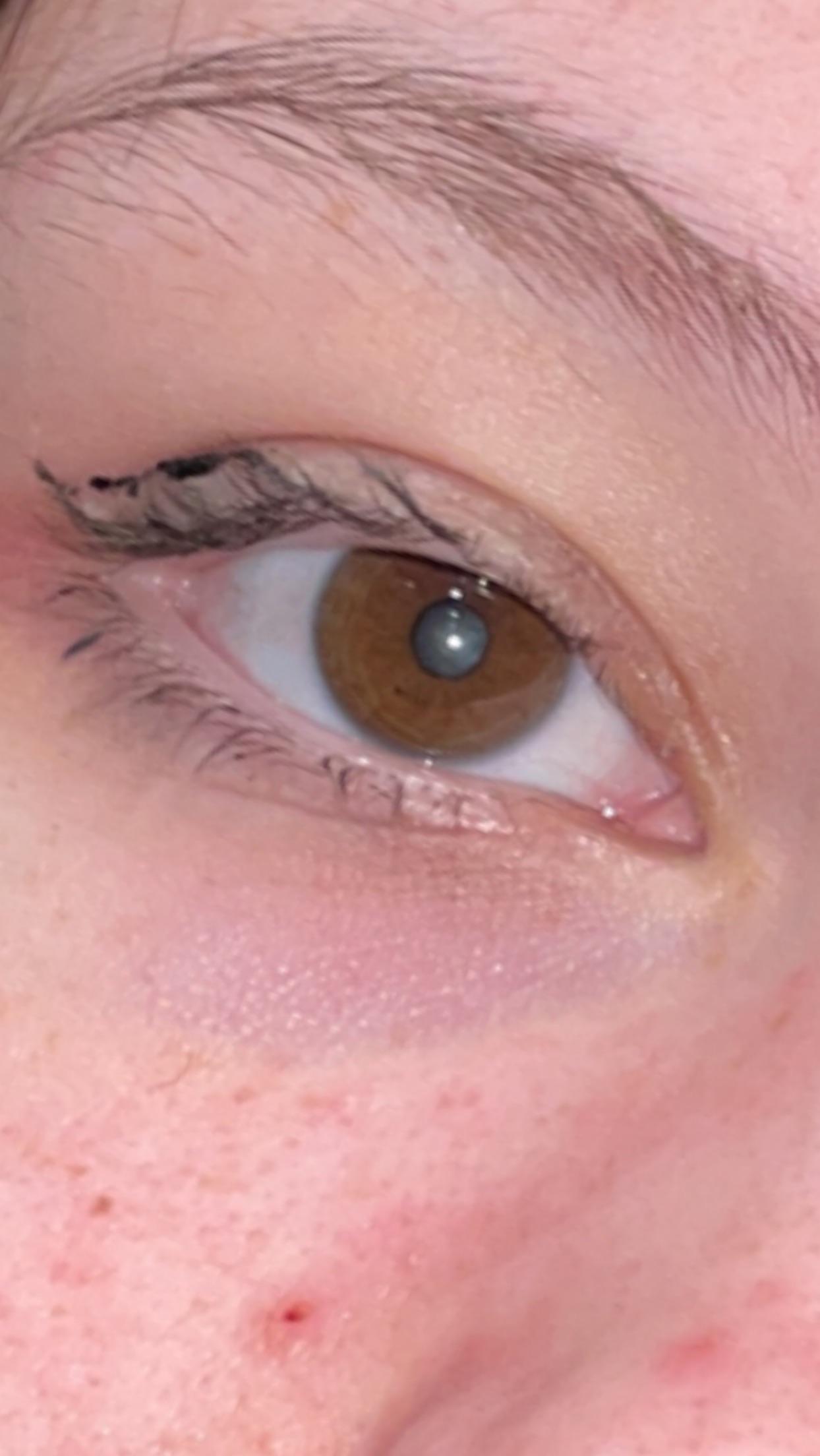
Image source: Reddit
Iron deficiency anemia can affect vision and visual acuity by disrupting oxygen supply to the eye tissues and compromising retinal function. Symptoms may include blurred vision, difficulty focusing, or impaired night vision, which can impact daily activities and quality of life.
62. Increased Heart Rate
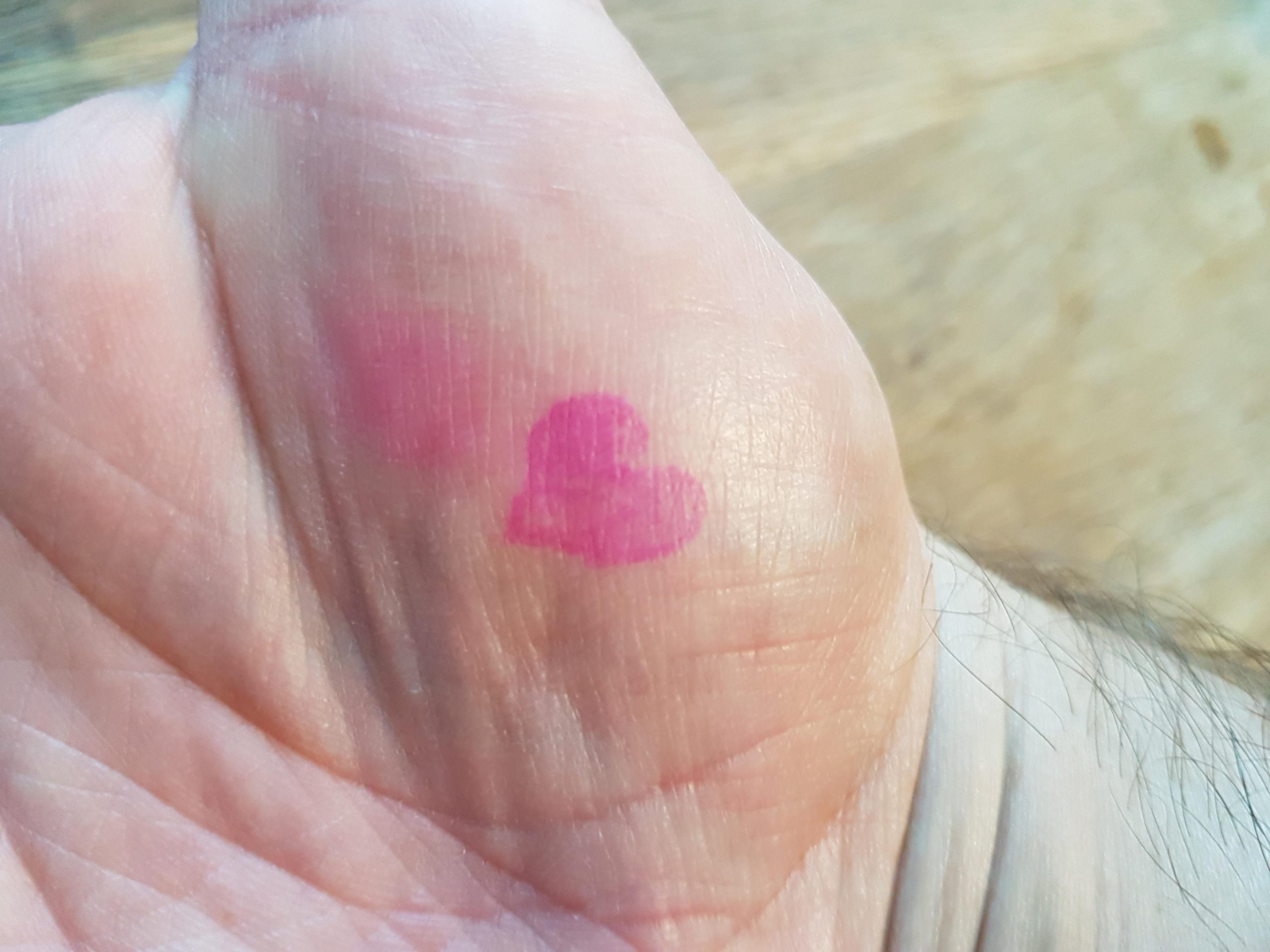
Iron deficiency anemia can lead to tachycardia, or a rapid heart rate, as the heart works harder to compensate for decreased oxygen-carrying capacity of the blood. Elevated heart rate may occur at rest or during physical activity and can manifest as palpitations, fluttering sensations, or a pounding heartbeat.
63. Burning/Sore Throat
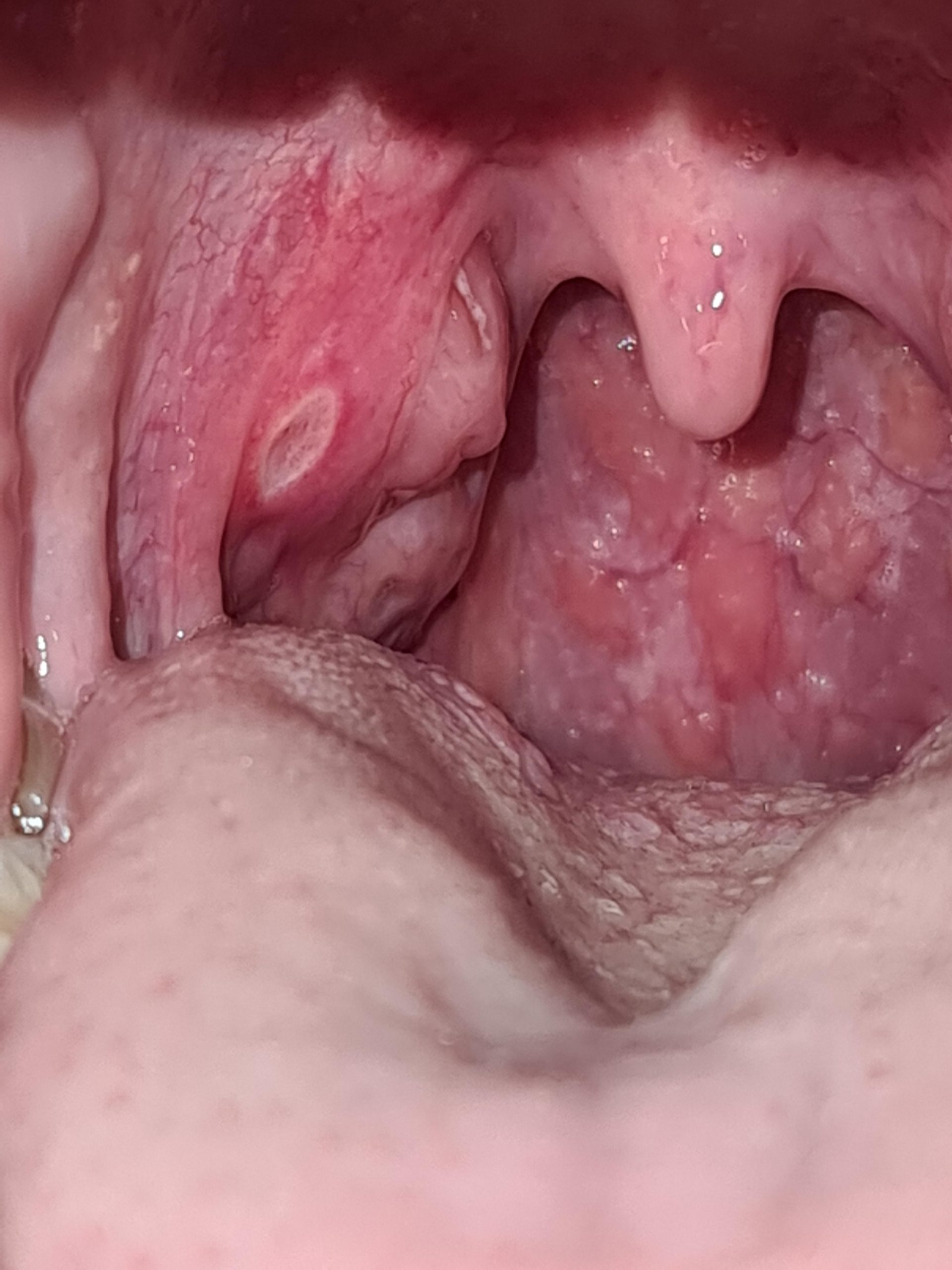
Image source: Reddit
Iron deficiency anemia can contribute to throat discomfort and inflammation, leading to symptoms such as a burning or sore throat, difficulty swallowing, or hoarseness. Reduced oxygen supply to the throat tissues compromises mucosal integrity and immune function, making the throat more susceptible to irritation and infection.
64. Brittle/Weak Teeth
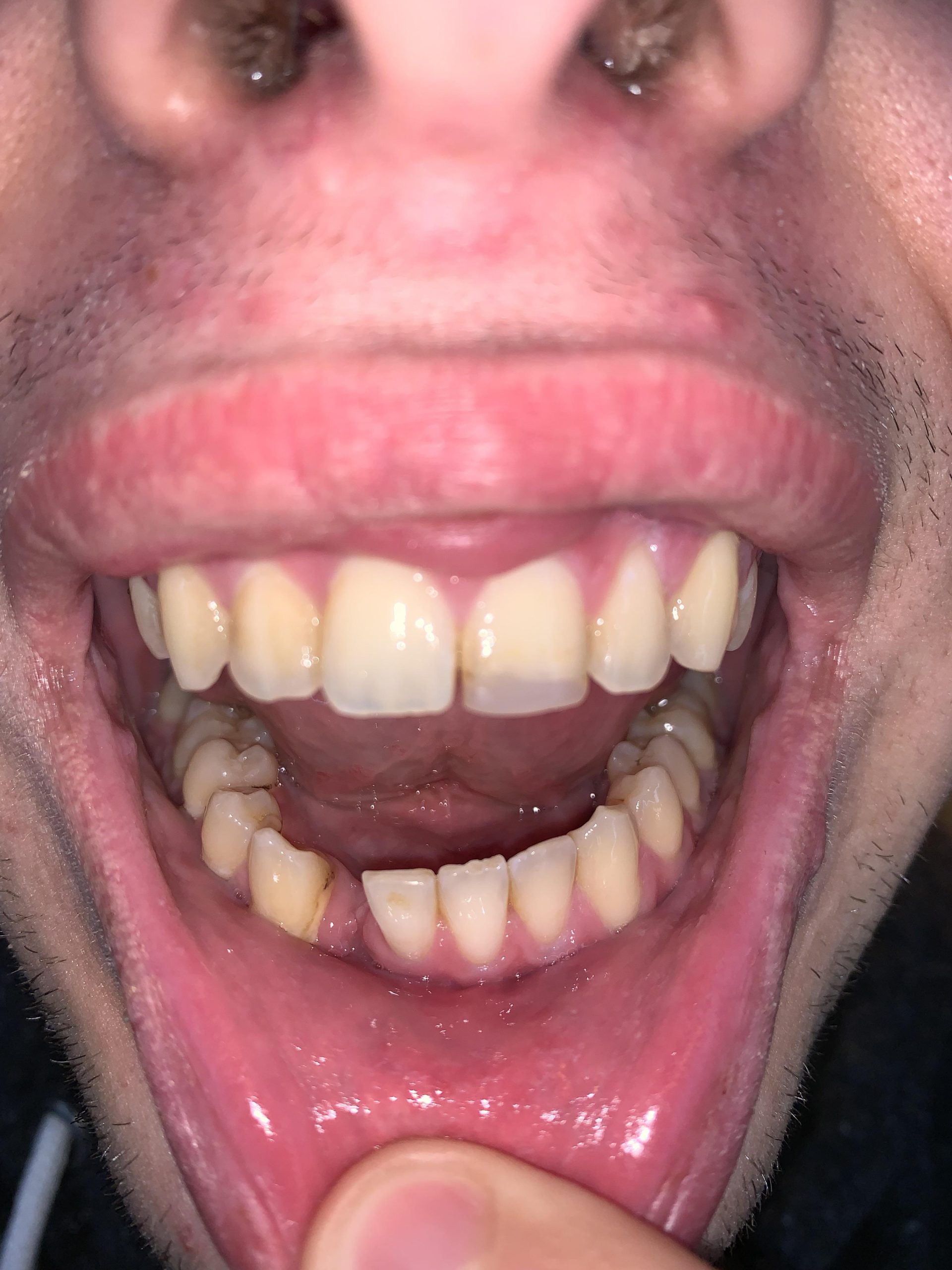
Image source: Reddit
Iron deficiency anemia can negatively impact dental health and contribute to the development of brittle, weak teeth prone to decay, erosion, and fractures. Inadequate iron levels compromise enamel strength and integrity, making teeth more susceptible to damage from acidic foods, bacteria, and mechanical stress.
65. Sparse Eyelashes/Eyebrows
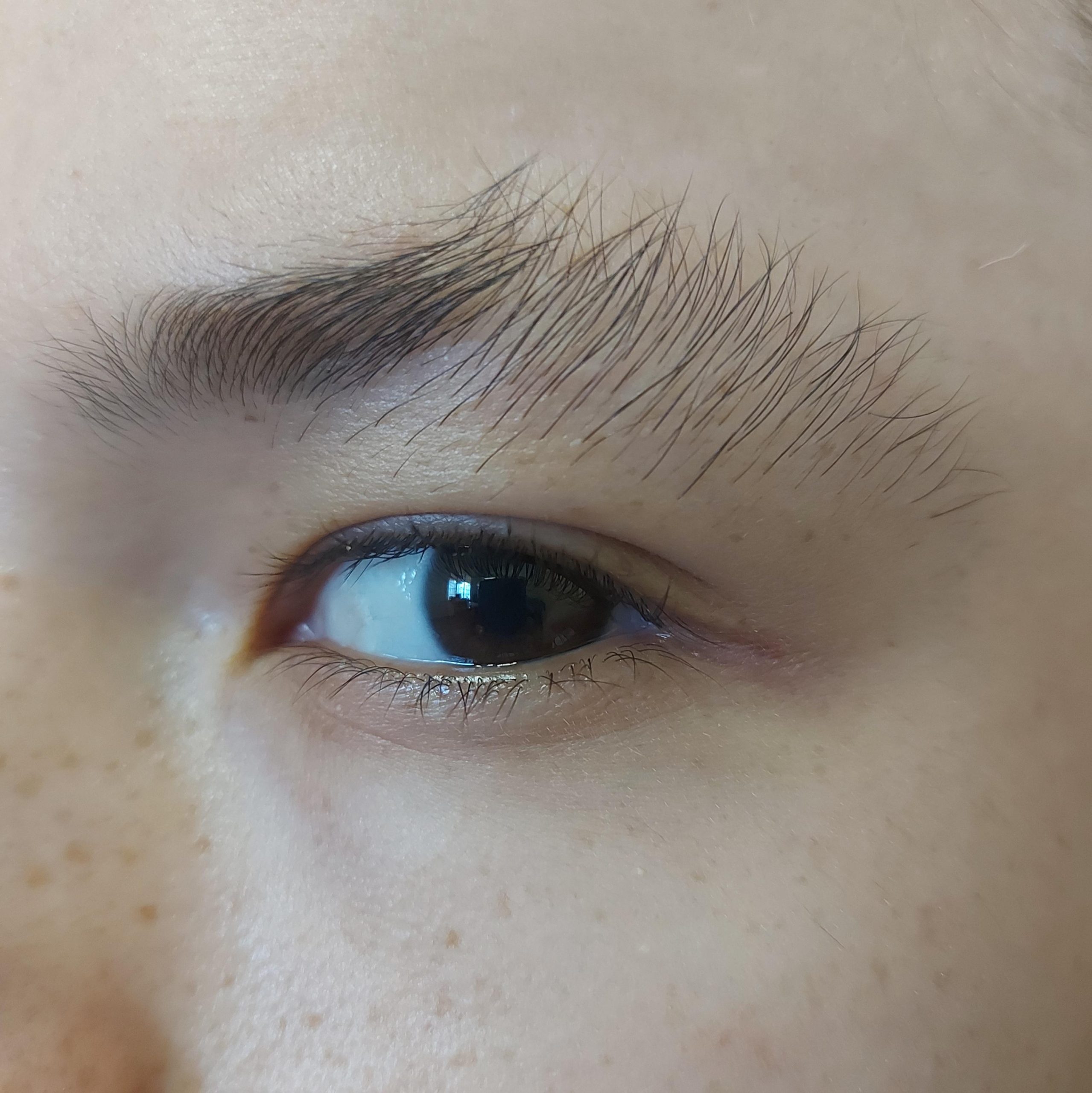
Image source: Reddit
Iron deficiency anemia can affect hair growth patterns, leading to sparse, thinning eyelashes and eyebrows due to disruptions in the hair growth cycle. Inadequate iron levels compromise follicular nourishment and function, resulting in decreased hair density and slow growth.
66. Abnormal Menstrual Cycle

Image source: Reddit
Iron deficiency anemia can disrupt menstrual cycles and lead to irregular or abnormal bleeding patterns, including heavy menstrual bleeding (menorrhagia), prolonged periods, or amenorrhea (absence of menstruation). Inadequate iron levels compromise hormonal regulation and uterine blood flow, contributing to menstrual disturbances and gynecological complications.
67. Infertility Issues
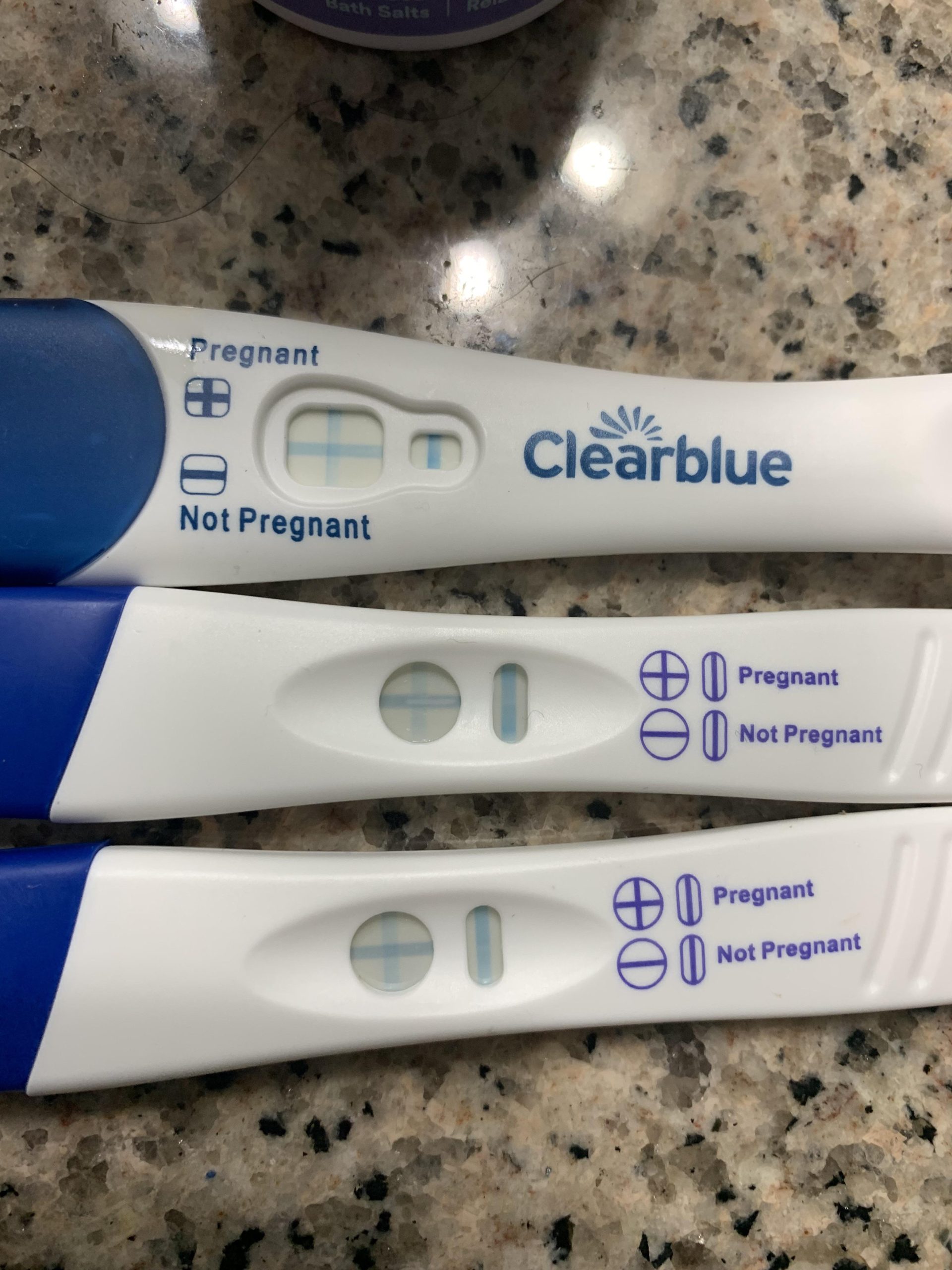
Image source: Reddit
Iron deficiency anemia can impact fertility and reproductive health by disrupting hormonal balance, compromising ovarian function, and impairing embryo implantation and development. Inadequate iron levels can lead to menstrual irregularities, ovulatory dysfunction, and suboptimal uterine environment, contributing to difficulties conceiving or maintaining a pregnancy.
68. Premature Births

Image source: Reddit
Iron deficiency anemia during pregnancy increases the risk of preterm birth, defined as delivery before 37 weeks of gestation, due to complications such as preterm labor, placental abnormalities, and intrauterine growth restriction. Inadequate iron levels compromise maternal and fetal oxygenation, leading to adverse pregnancy outcomes and increased likelihood of preterm delivery.
69. Low Birth Weight in Newborns

Image source: Reddit
Iron deficiency anemia during pregnancy is associated with an increased risk of low birth weight (less than 2,500 grams or 5.5 pounds) in newborns, which can have significant implications for infant health and development. Insufficient maternal iron stores compromise fetal growth and nutrient supply, leading to reduced birth weight and increased susceptibility to neonatal complications.
70. Pale Gums
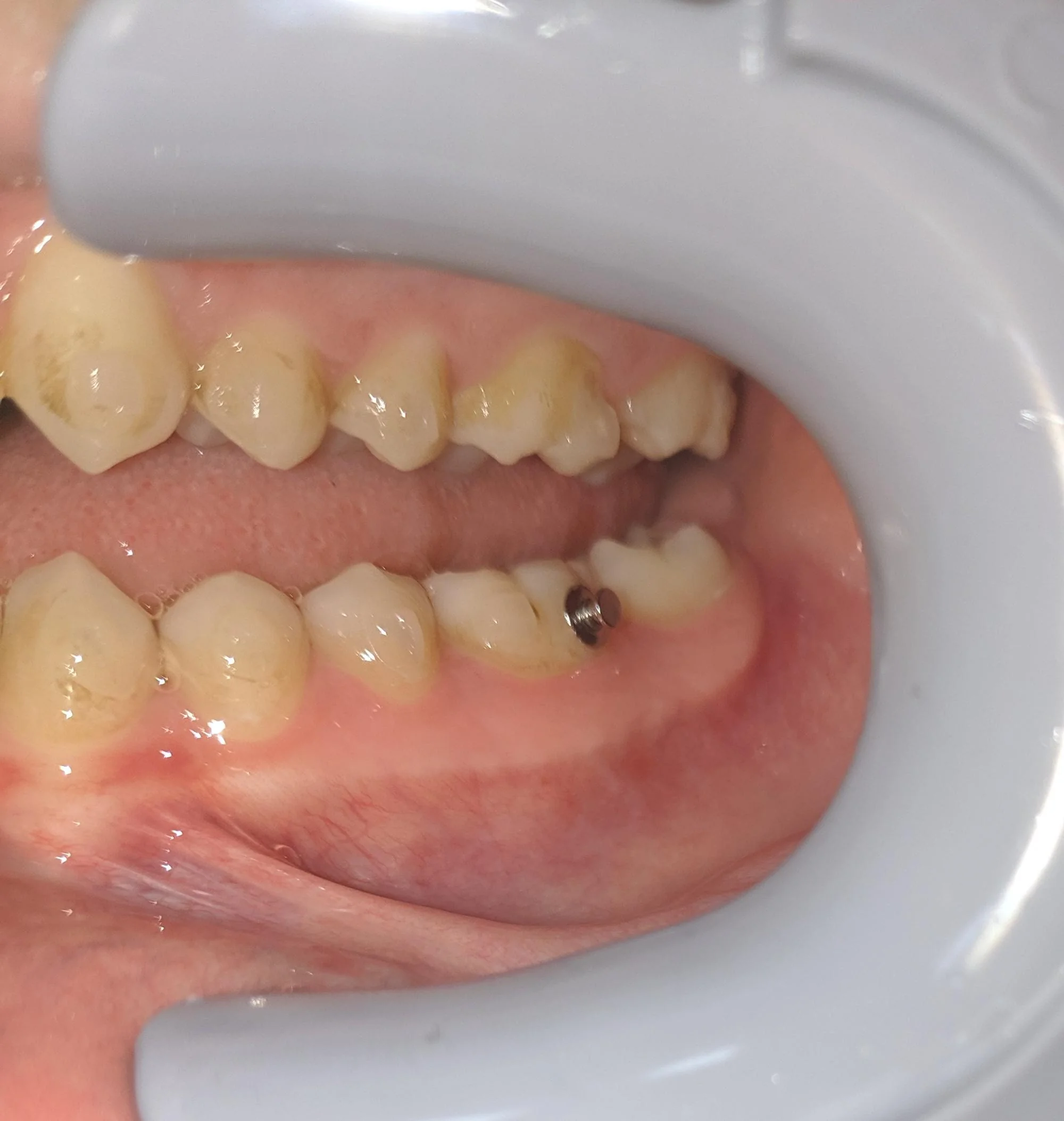
Image source: Reddit
Iron deficiency anemia can cause pallor or paleness of the gums, tongue, and oral mucosa due to decreased hemoglobin levels and reduced oxygen saturation of tissues. Pale gums may appear noticeably lighter in color than usual and may be accompanied by other symptoms of anemia, such as fatigue, weakness, and shortness of breath.
71. Swollen Legs
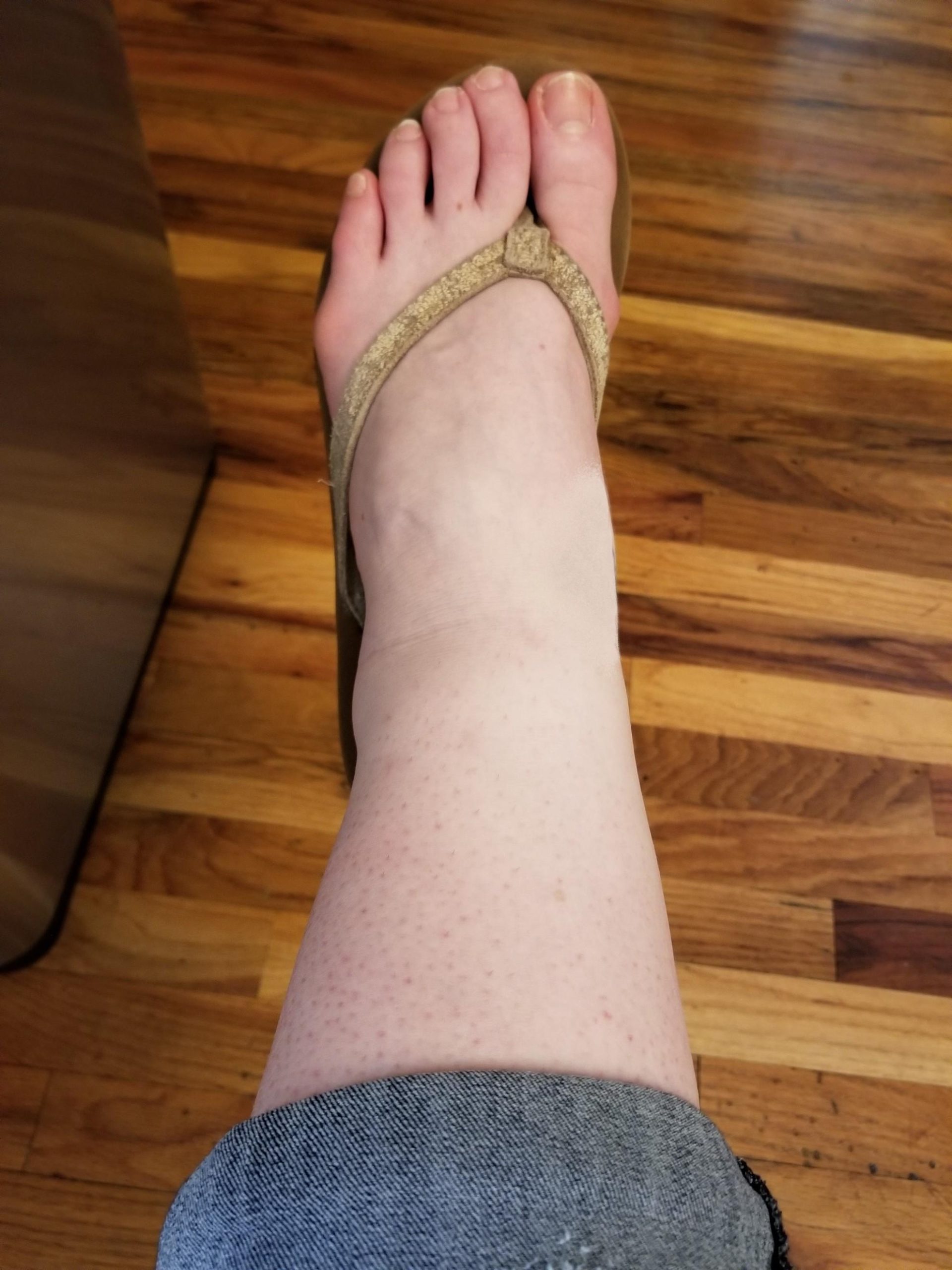
Image source: Reddit
Iron deficiency anemia can contribute to fluid retention and swelling in the legs and ankles, a condition known as peripheral edema, due to impaired circulation and reduced capillary integrity. Swollen legs may appear puffy, tight, or tender to the touch and may worsen with prolonged standing or sitting.
72. Excessive Thirst
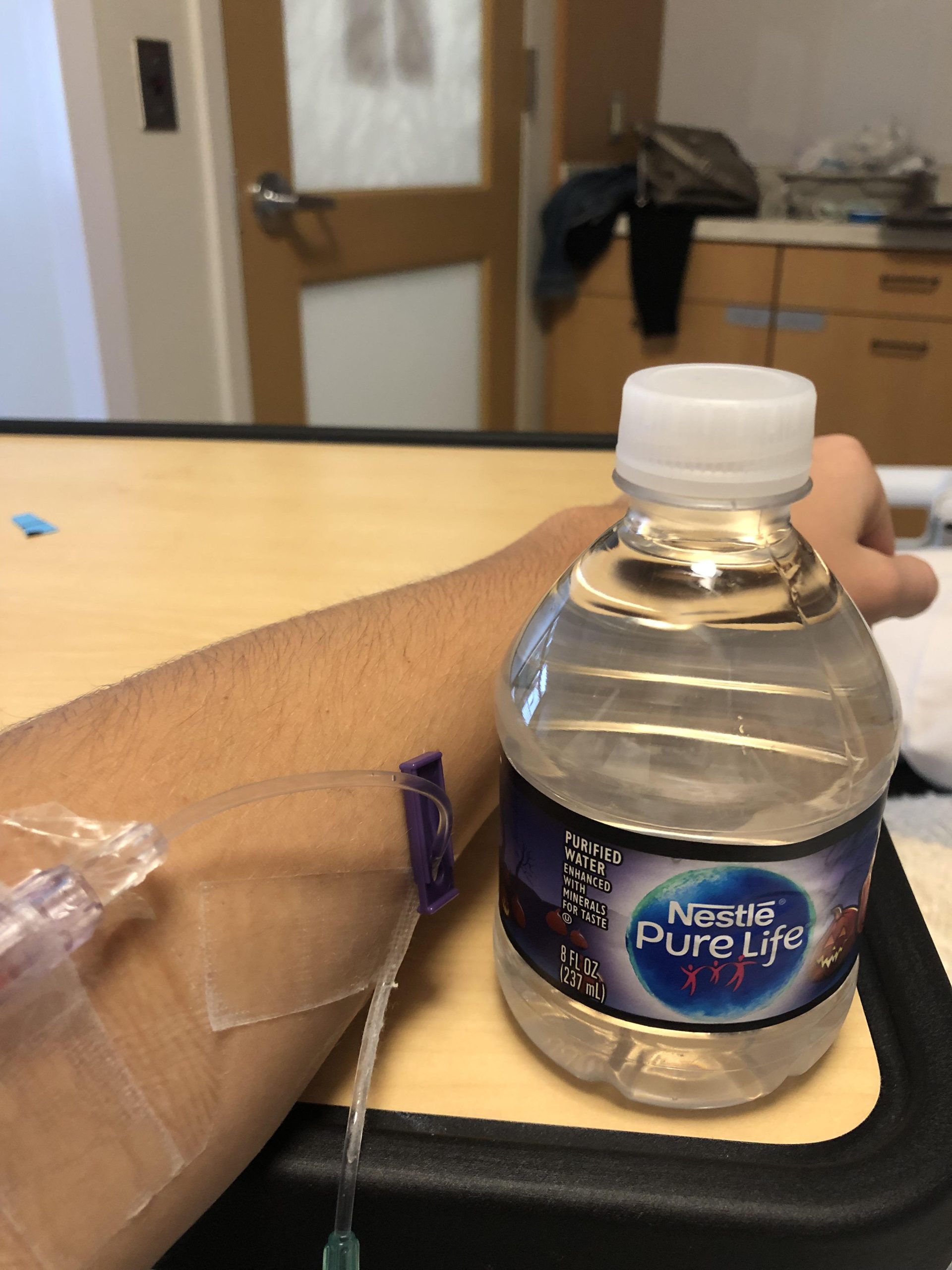
Image source: Reddit
Iron deficiency anemia can lead to excessive thirst, also known as polydipsia, as the body attempts to compensate for decreased blood volume and impaired oxygen-carrying capacity. Increased fluid intake may help dilute the blood and alleviate dehydration associated with anemia-related symptoms such as fatigue, dizziness, and weakness.
73. Excessive Gas

Image source: Reddit
Iron deficiency anemia can disrupt gastrointestinal motility and digestive processes, leading to excessive gas production and bloating. Impaired iron absorption and altered gut microbiota composition associated with anemia may contribute to gastrointestinal symptoms such as bloating, flatulence, and abdominal discomfort.
74. Excessive Bloating

Image source: Reddit
Iron deficiency anemia can cause abdominal bloating and distension due to alterations in gastrointestinal motility, gas accumulation, and impaired digestive function. Bloating may be accompanied by other gastrointestinal symptoms such as abdominal discomfort, cramping, and irregular bowel movements.
75. Impaired Kidney Function

Image source: Reddit
Iron deficiency anemia can negatively impact kidney function and contribute to the development or progression of kidney disorders such as chronic kidney disease (CKD) or renal failure. Inadequate iron levels impair renal oxygenation and tissue integrity, leading to structural damage, inflammation, and dysfunction of the kidneys.
76. Indigestion

Image source: Reddit
Iron deficiency anemia can disrupt digestive processes and lead to symptoms of indigestion, such as heartburn, bloating, and discomfort in the upper abdomen. Reduced iron levels may impair gastric acid production and digestive enzyme activity, affecting nutrient absorption and gastric motility.
77. Changes in Bowel Movements

Image source: Reddit
Iron deficiency anemia can affect bowel function and lead to changes in stool frequency, consistency, and color, such as constipation or dark, tarry stools (melena). Reduced iron levels may slow down gastrointestinal transit time and promote water reabsorption in the colon, resulting in harder stools and difficulty passing waste.
78. Increased Risk of Parkinson's Disease

Image source: Reddit
Emerging research suggests that iron deficiency anemia may be associated with an increased risk of developing Parkinson's disease, a progressive neurological disorder characterized by motor symptoms such as tremors, rigidity, and bradykinesia. Iron plays a crucial role in dopamine synthesis and neuronal function, and inadequate iron levels may contribute to neurodegeneration and Parkinson's disease pathogenesis.
79. Insomnia

Image source: Reddit
Iron deficiency anemia can disrupt sleep patterns and contribute to symptoms of insomnia, characterized by difficulty falling asleep, staying asleep, or experiencing restful sleep. Iron plays a vital role in neurotransmitter synthesis and regulation of sleep-wake cycles, and insufficient iron levels may impair sleep quality and duration.
80. Decreased Motivation

Image source: Reddit
Iron deficiency anemia can affect mood and motivation, leading to feelings of fatigue, apathy, and reduced interest or enthusiasm in daily activities. Inadequate oxygen delivery to the brain and altered neurotransmitter function associated with anemia may contribute to cognitive and behavioral changes, including decreased motivation and initiative.
81. Reduced Tolerance to Stress
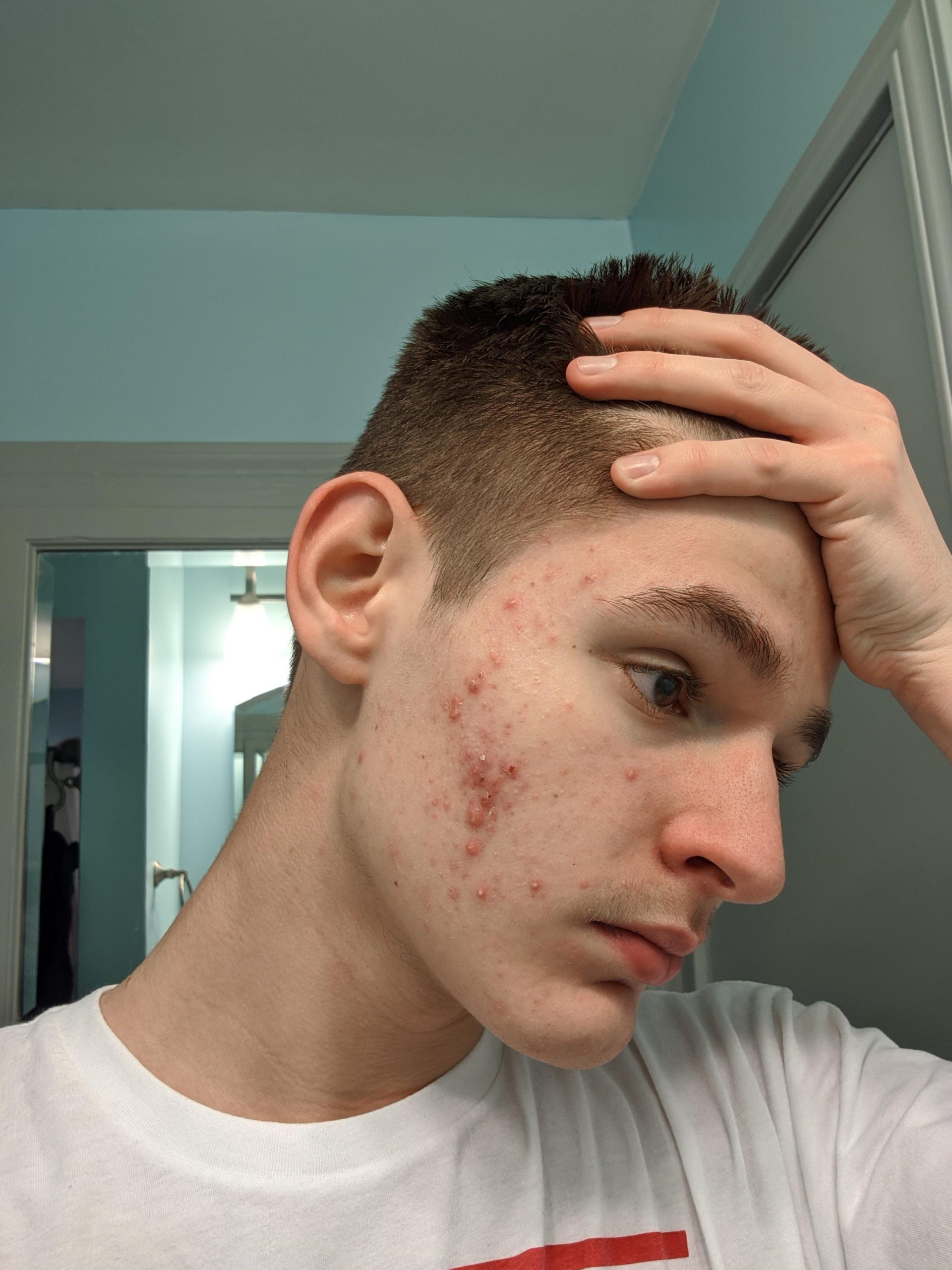
Image source: Reddit
Iron deficiency anemia can impair stress response mechanisms and reduce resilience to psychological and physiological stressors, leading to heightened sensitivity and vulnerability to stress. Inadequate iron levels compromise adrenal function and hormonal regulation, affecting the body's ability to cope with stress and maintain homeostasis.
82. Difficulty Controlling Impulses

Image source: Reddit
Iron deficiency anemia can affect cognitive function and executive control processes, leading to difficulties in impulse control, decision-making, and behavioral regulation. Inadequate iron levels may impair prefrontal cortex function and neurotransmitter activity, influencing impulse control and emotional regulation.
83. Impaired Balance

Image source: Reddit
Iron deficiency anemia can affect coordination and balance, increasing the risk of falls, accidents, and injuries. Reduced oxygen delivery to the brain and altered neuromuscular function associated with anemia may impair proprioception and vestibular function, affecting balance and spatial orientation.
84. Increased Susceptibility to Allergies
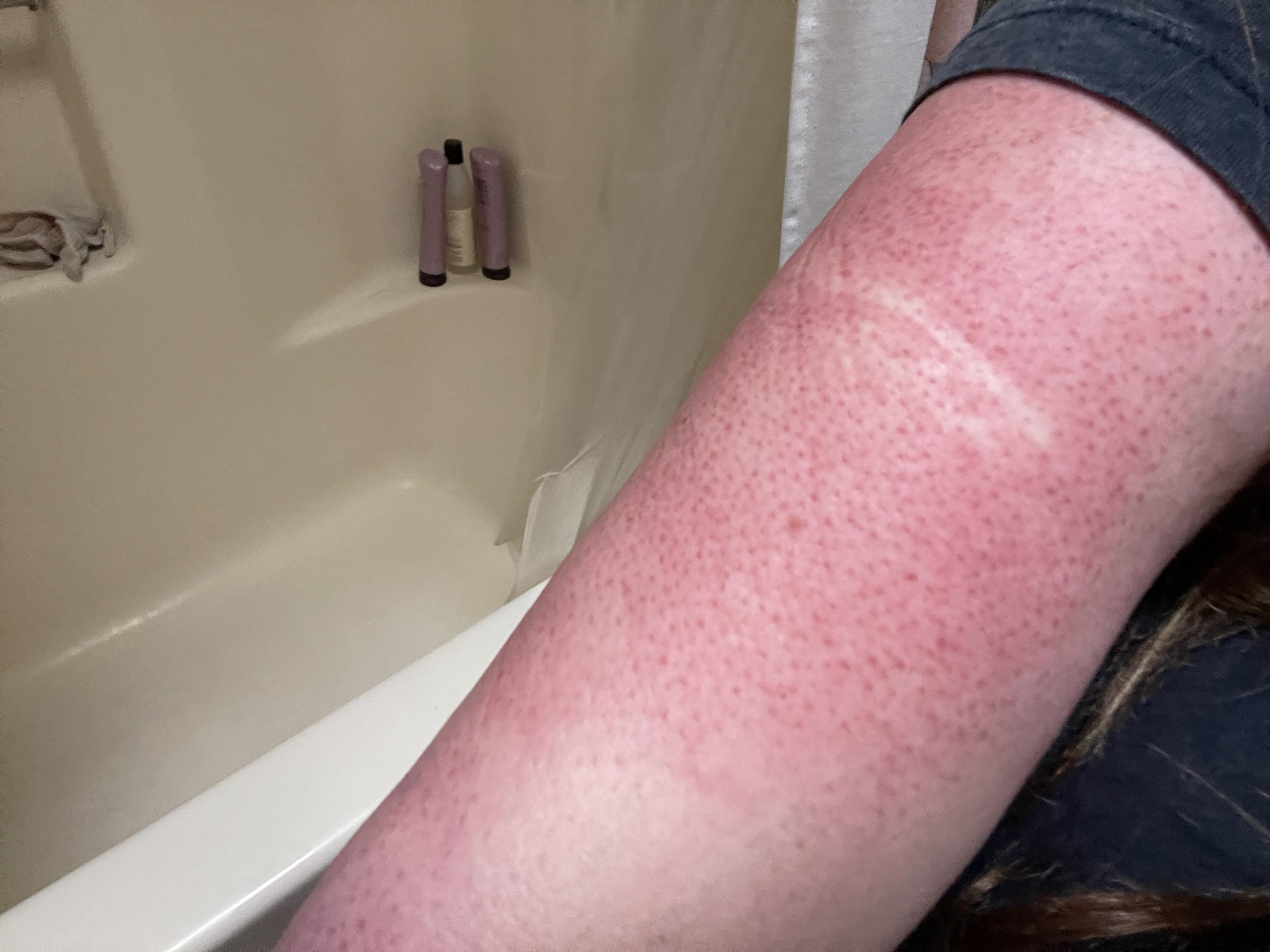
Image source: Reddit
Iron deficiency anemia may be associated with an increased risk of developing allergies or exacerbating existing allergic conditions due to alterations in immune function and inflammatory responses. Inadequate iron levels compromise immune cell function and cytokine production, leading to dysregulated immune responses and heightened sensitivity to allergens.
85. You Become Way More Clumsy

Image source: Reddit
Iron deficiency anemia can impair coordination, proprioception, and fine motor skills, leading to increased clumsiness and a higher risk of accidents or injuries. Reduced oxygen delivery to the brain and altered neuromuscular function associated with anemia may affect movement control and spatial awareness, resulting in clumsiness and difficulties with tasks requiring precision or coordination.
86. Dry and Itchy Eyes
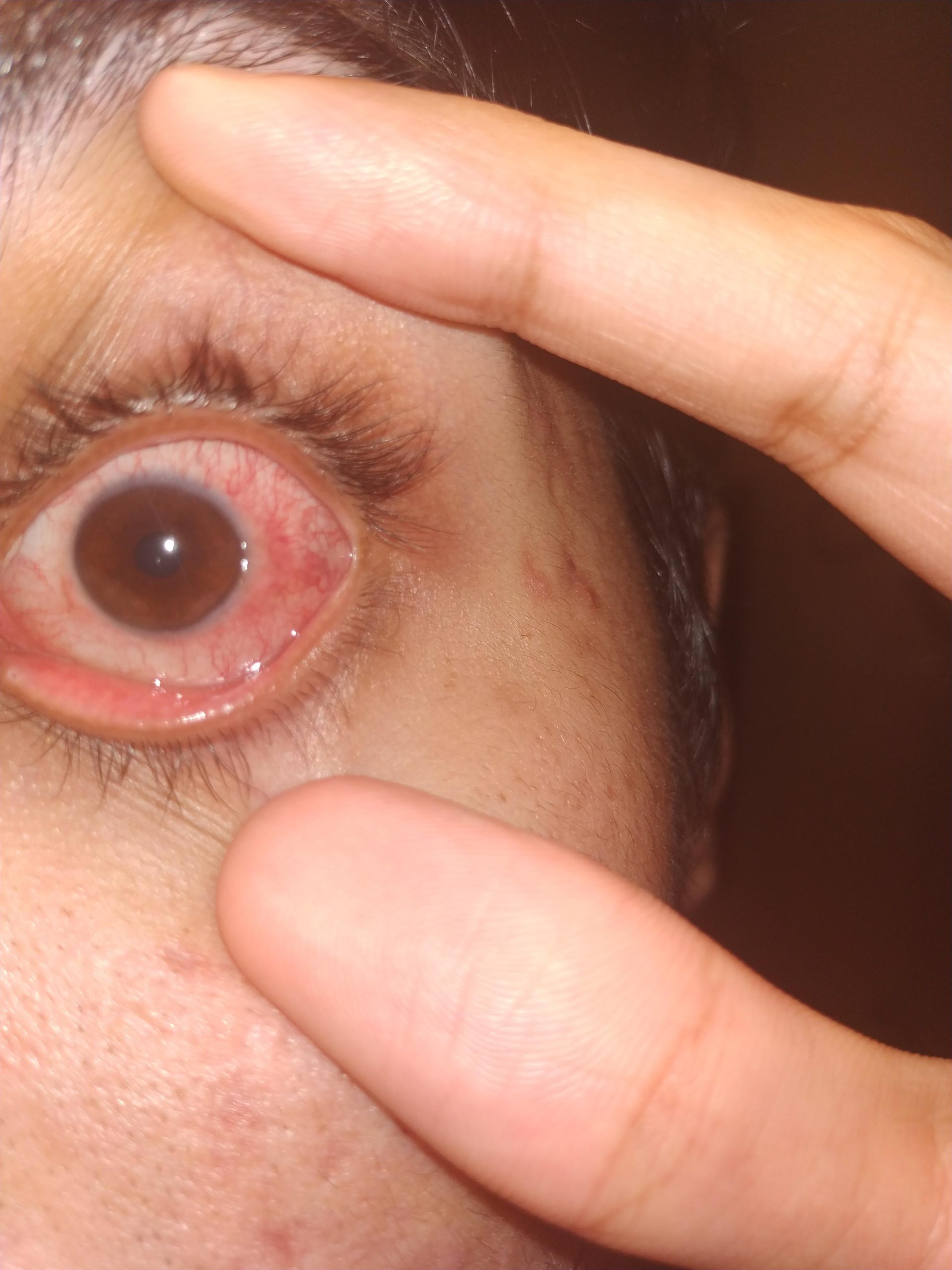
Image source: Reddit
Iron deficiency anemia can contribute to ocular dryness and discomfort, leading to symptoms of dry, itchy, or irritated eyes. Inadequate iron levels compromise tear film stability and ocular surface integrity, resulting in reduced lubrication and increased susceptibility to dry eye syndrome.
87. Eye Strain When Using Screens
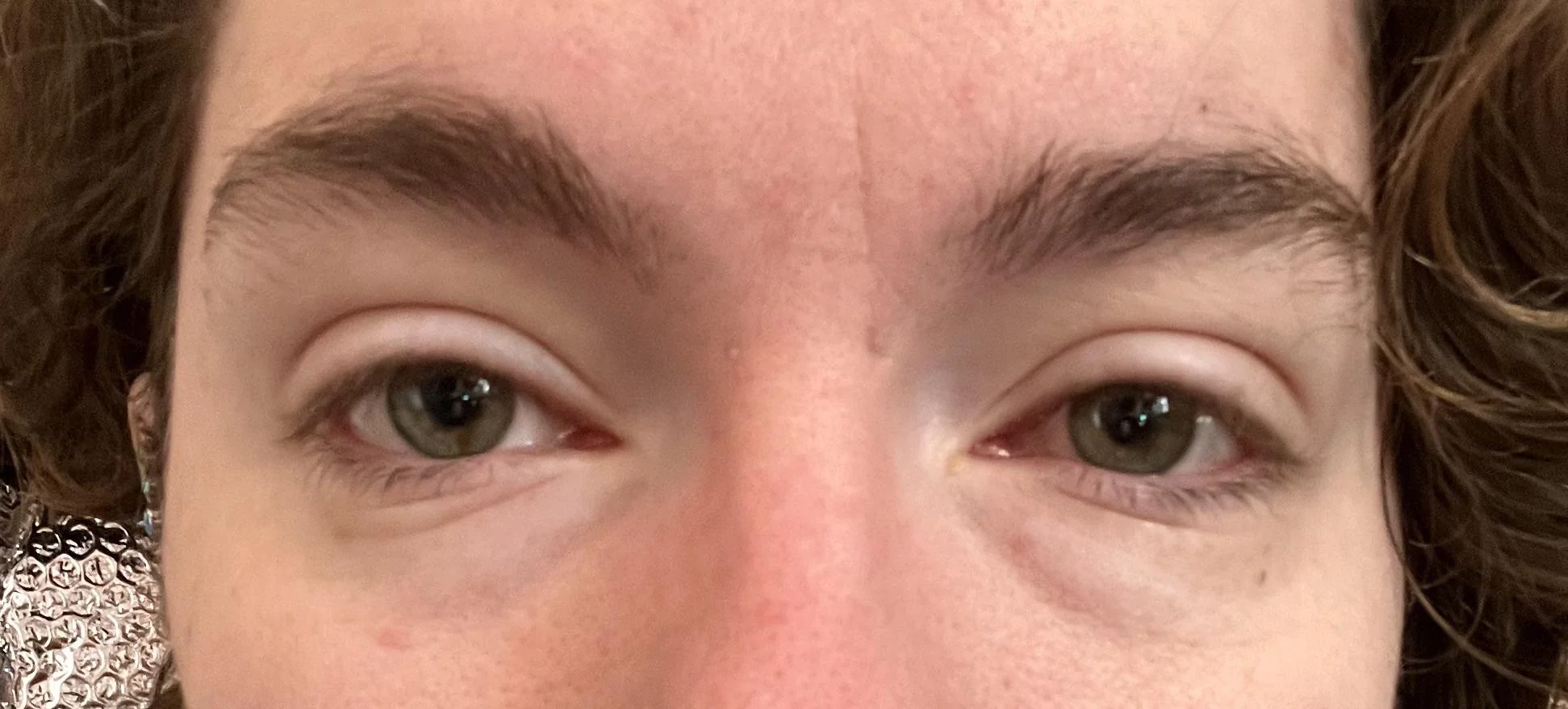
Image source: Reddit
Iron deficiency anemia can exacerbate eye strain and visual discomfort when using digital screens such as computers, smartphones, or tablets. Reduced ocular lubrication and tear film stability associated with anemia may increase susceptibility to digital eye strain symptoms such as dryness, irritation, and fatigue.
88. Sensitivity to Light
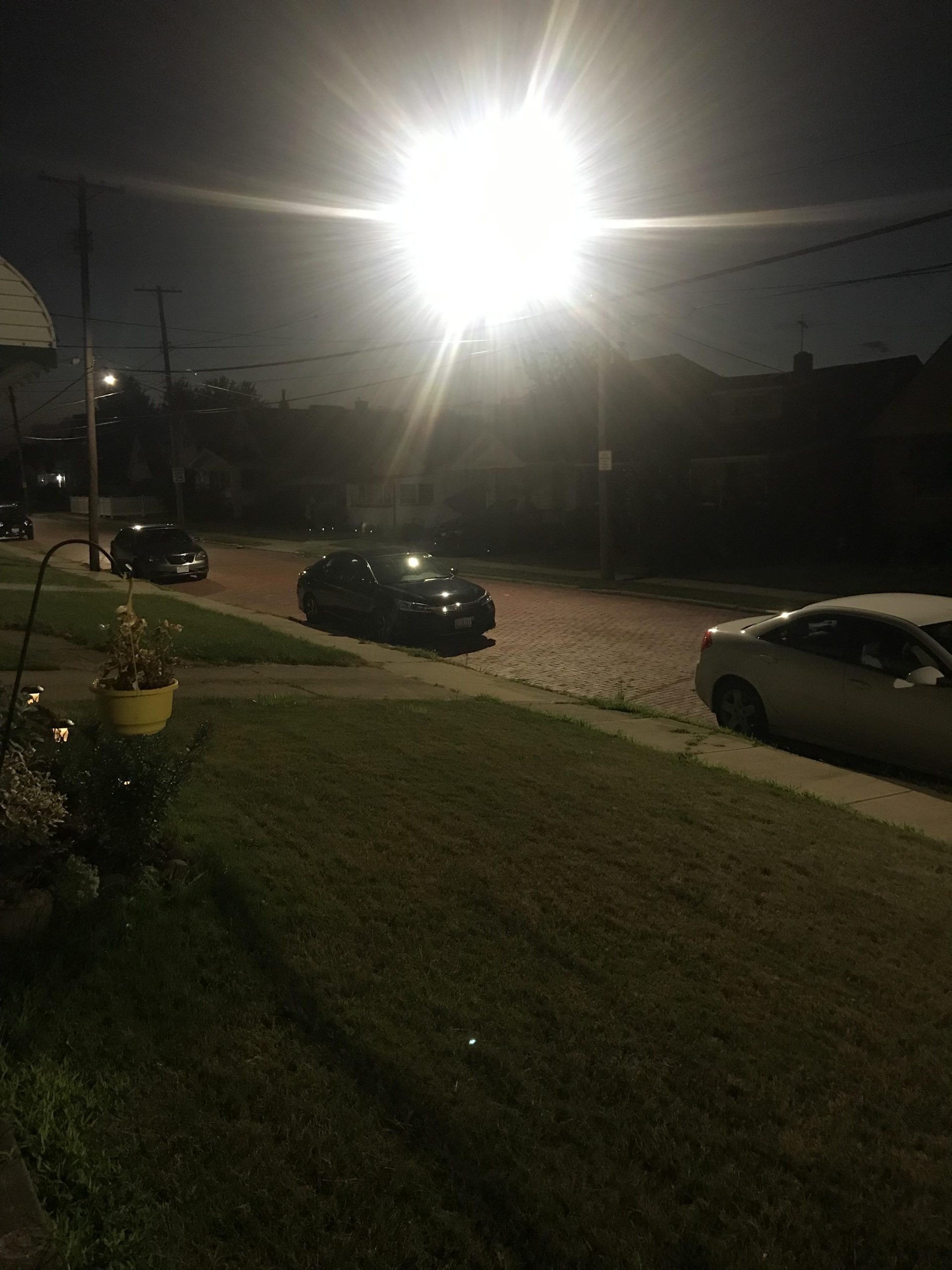
Image source: Reddit
Iron deficiency anemia can heighten sensitivity to light, a condition known as photophobia, due to alterations in ocular surface health and visual processing. Reduced tear film stability and corneal hydration associated with anemia may exacerbate discomfort and visual disturbances in response to bright lights or glare.
89. Tinnitus

Image source: Reddit
Iron deficiency anemia may be associated with tinnitus, or ringing in the ears, due to alterations in auditory processing and neurotransmitter function. Inadequate iron levels can affect cochlear blood flow and hair cell function, leading to auditory disturbances and perception of phantom sounds such as ringing, buzzing, or humming.
90. Changes in Smell Perception
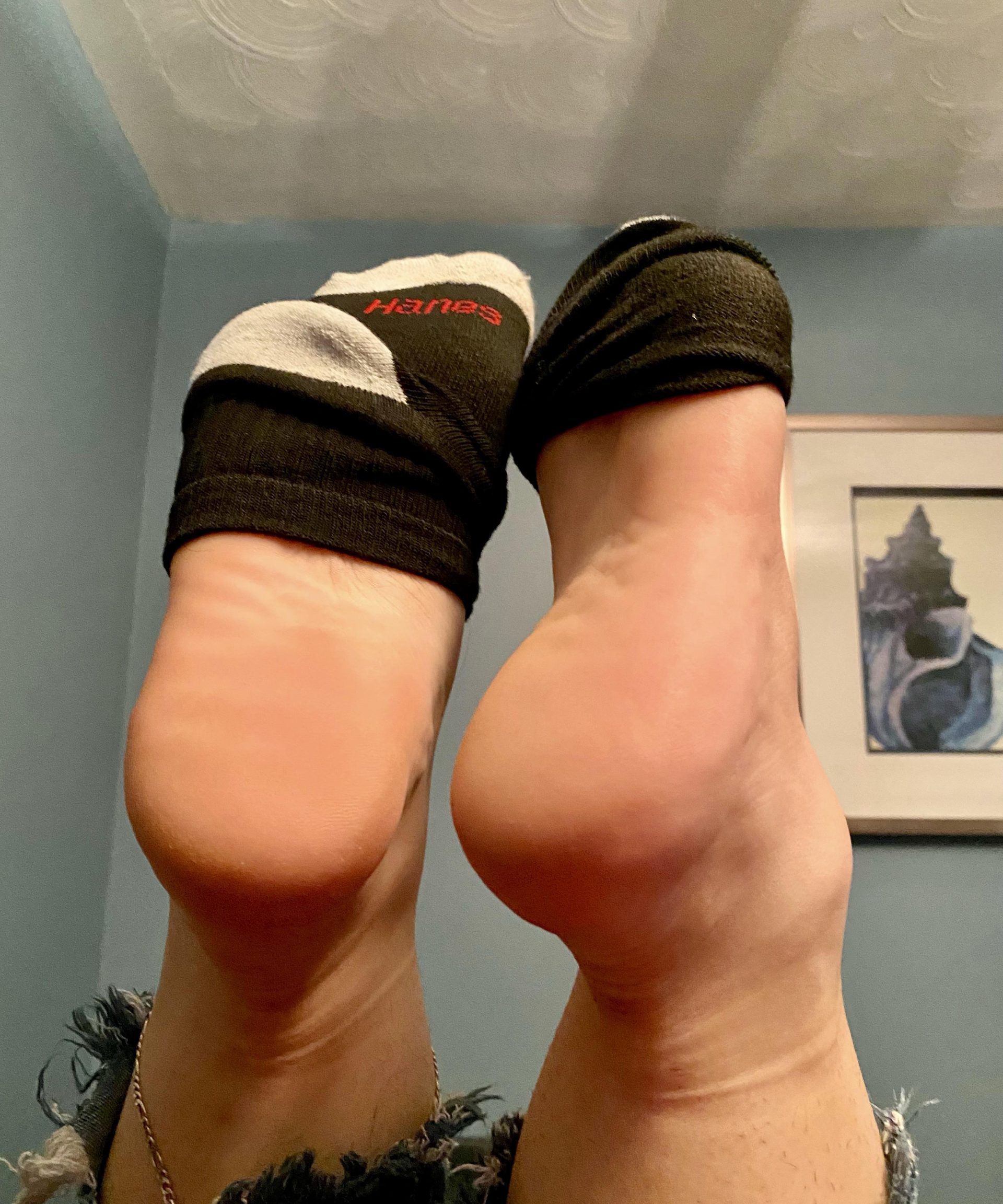
Image source: Reddit
Iron deficiency anemia can affect olfactory function and alter smell perception, leading to changes in the ability to detect, recognize, or interpret odors. Reduced oxygen delivery to the olfactory epithelium and alterations in neurotransmitter activity associated with anemia may impair olfactory signaling and processing, affecting smell sensitivity and discrimination.
91. Nausea or Vomiting
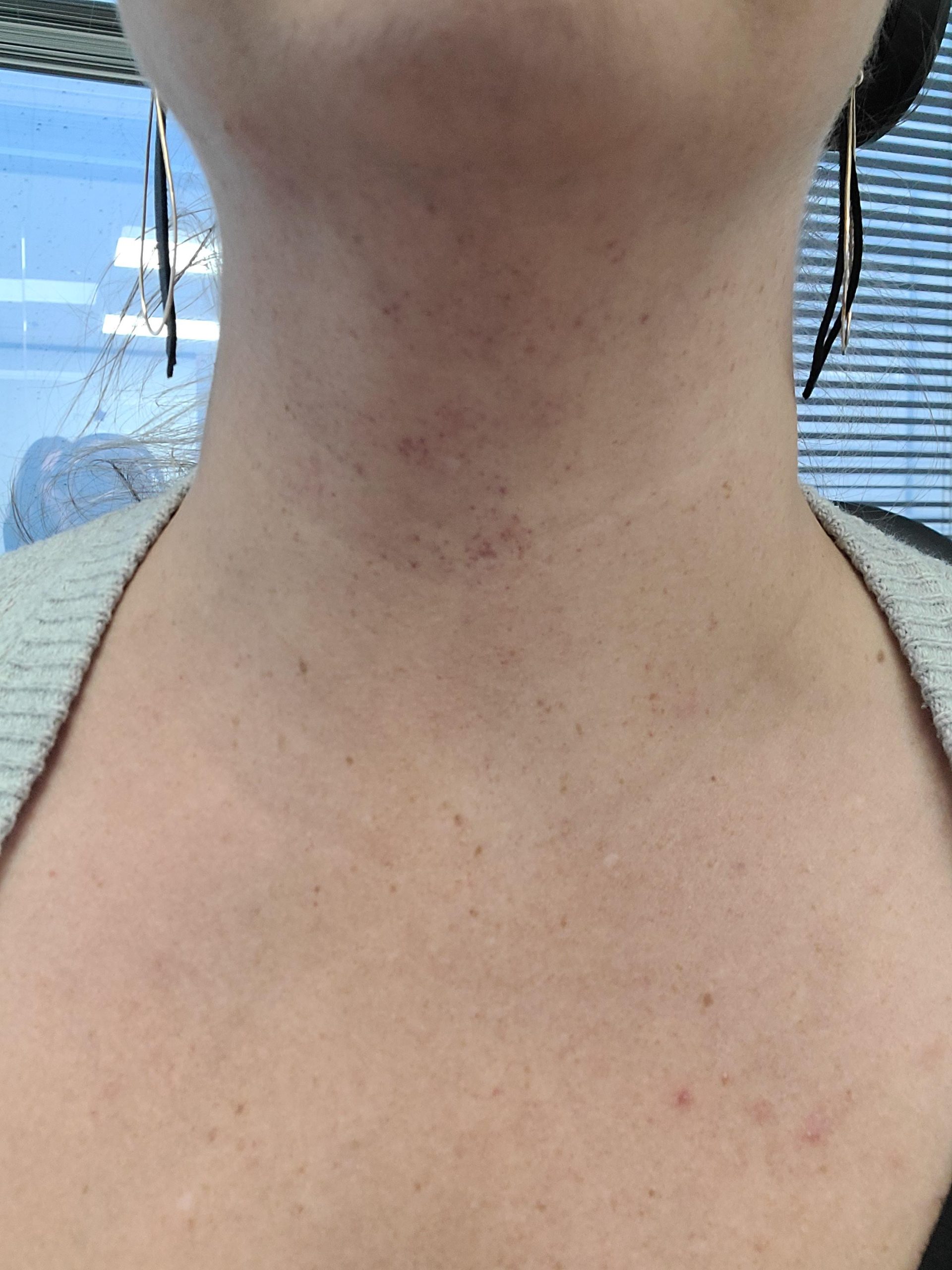
Image source: Reddit
Iron deficiency anemia can contribute to gastrointestinal symptoms such as nausea or vomiting, particularly in cases of severe anemia or iron overload. Altered gastric motility, increased gastric acid secretion, and mucosal irritation associated with anemia may trigger nausea or vomiting episodes.
92. Abdominal Pain

Image source: Reddit
Iron deficiency anemia can cause abdominal pain or discomfort, often localized to the epigastric region or lower abdomen, due to gastrointestinal disturbances and dysmotility. Inadequate iron levels may disrupt gastric acid secretion, intestinal peristalsis, and mucosal integrity, leading to abdominal cramping, bloating, or tenderness.
93. Difficulty Urinating… or Even More Frequent Urination

Image source: Reddit
Iron deficiency anemia can affect urinary function and lead to changes in urinary frequency, urgency, or voiding patterns. Altered fluid balance, renal blood flow, and bladder function associated with anemia may result in difficulties with urination or increased frequency of urination.
94. Dark Colored Urine

Image source: Reddit
Iron deficiency anemia can cause changes in urine color, resulting in dark, concentrated urine due to alterations in renal blood flow, filtration, and excretion processes. Reduced iron levels may affect urinary composition and osmolality, leading to darker urine coloration and increased risk of dehydration.
95. Swollen/Inflamed Lymph Nodes

Image source: Reddit
Iron deficiency anemia can impact lymphatic function and contribute to lymph node enlargement or inflammation, particularly in cases of chronic or severe anemia. Inadequate iron levels compromise immune function and lymphocyte production, leading to lymphatic congestion and swelling.
96. Increased Susceptibility to Sunburn

Image source: Reddit
Iron deficiency anemia can increase susceptibility to sunburn and UV radiation damage due to impaired antioxidant defense mechanisms and compromised skin barrier function. Reduced iron levels may diminish the skin's ability to repair UV-induced DNA damage and neutralize free radicals, leading to increased sensitivity to sunlight and sunburn risk.
97. Chest Tightness and Discomfort

Image source: Reddit
Iron deficiency anemia can cause chest tightness and discomfort due to reduced oxygen delivery to the heart muscles and increased cardiac workload. Chest tightness may be accompanied by symptoms such as shortness of breath, palpitations, or dizziness, especially during physical exertion or stress.
98. Decreased Milk Production During Breastfeeding

Image source: Reddit
Iron deficiency anemia can affect lactation and milk production in breastfeeding mothers, leading to decreased milk volume or quality. Inadequate iron levels compromise hormonal regulation and mammary gland function, impairing milk synthesis and secretion.
99. Reduced Overall Quality of Life

Image source: Reddit
Iron deficiency anemia can significantly impact overall quality of life, leading to physical symptoms, cognitive changes, and emotional distress that affect daily functioning and well-being. Symptoms such as fatigue, weakness, and cognitive fog can impair productivity, social engagement, and enjoyment of life activities.
100. Tired All The Time
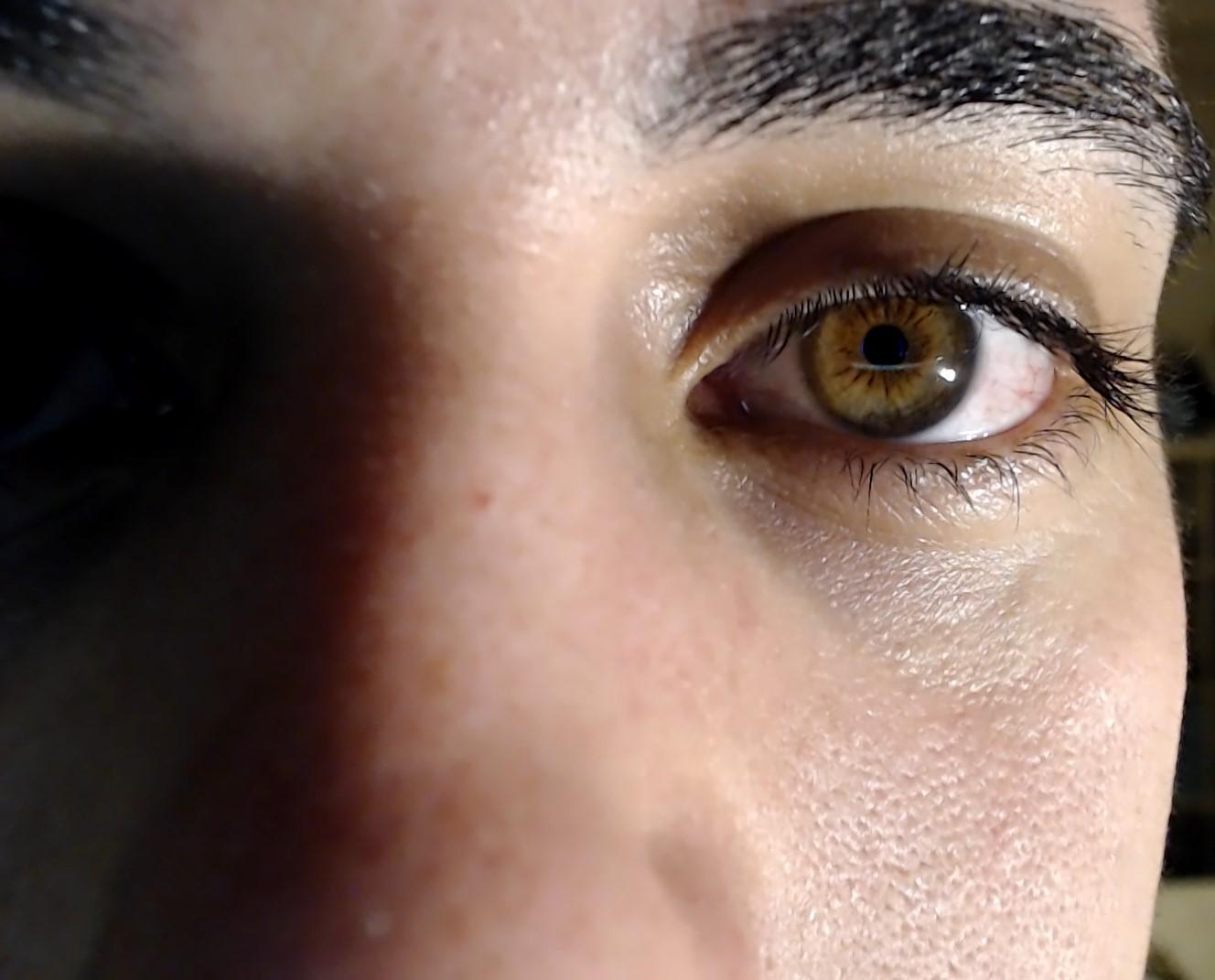
Image source: Reddit
Persistent fatigue often indicates an iron deficiency due to its pivotal role in oxygen transport. Insufficient iron impairs hemoglobin production, hindering oxygen delivery to tissues and causing fatigue. Correcting this deficiency typically alleviates tiredness, emphasizing the importance of iron in energy metabolism.
 Image source: Reddit
Image source: Reddit Image source: Reddit
Image source: Reddit


























































 Iron deficiency anemia can lead to tachycardia, or a rapid heart rate, as the heart works harder to compensate for decreased oxygen-carrying capacity of the blood. Elevated heart rate may occur at rest or during physical activity and can manifest as palpitations, fluttering sensations, or a pounding heartbeat.
Iron deficiency anemia can lead to tachycardia, or a rapid heart rate, as the heart works harder to compensate for decreased oxygen-carrying capacity of the blood. Elevated heart rate may occur at rest or during physical activity and can manifest as palpitations, fluttering sensations, or a pounding heartbeat.




































